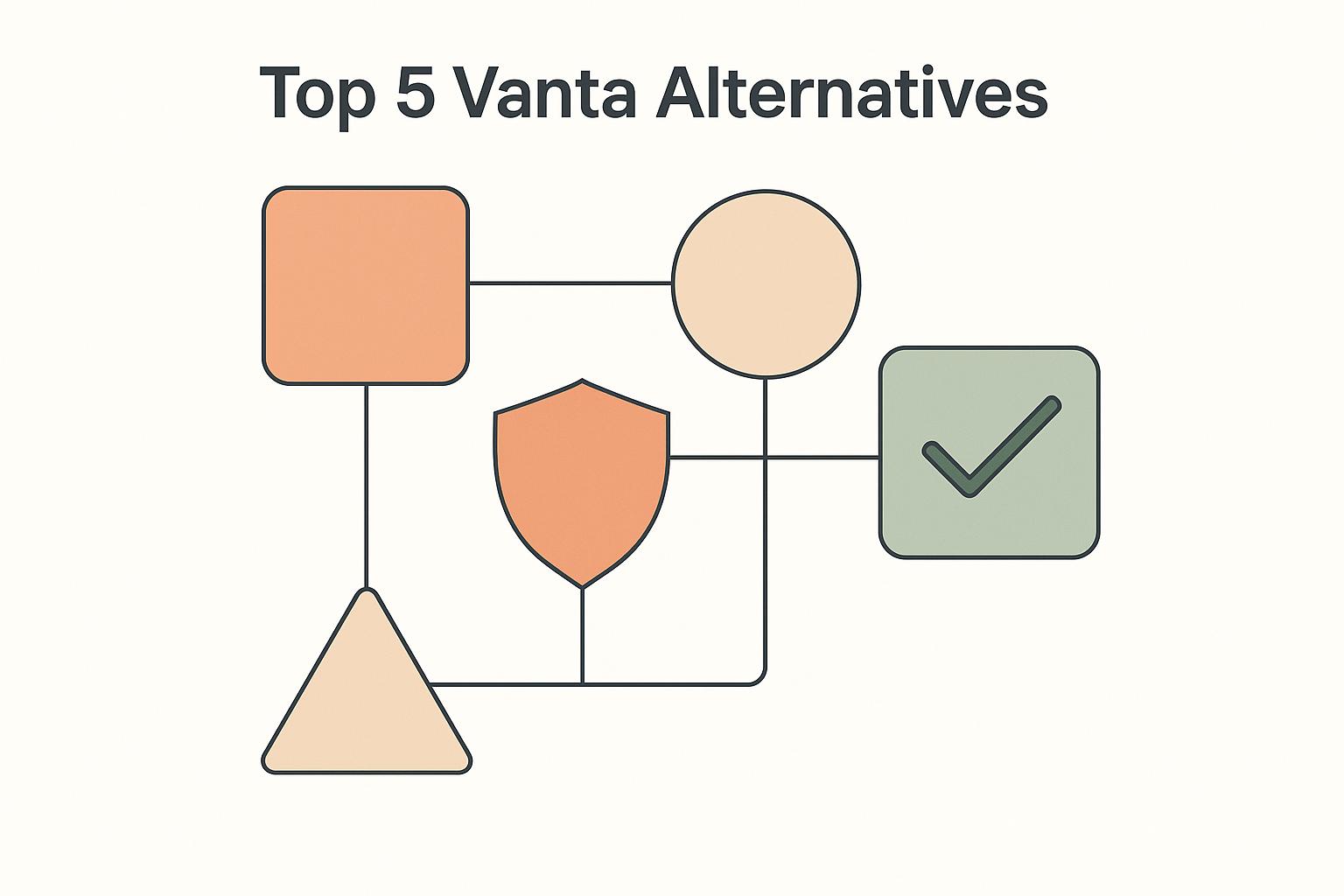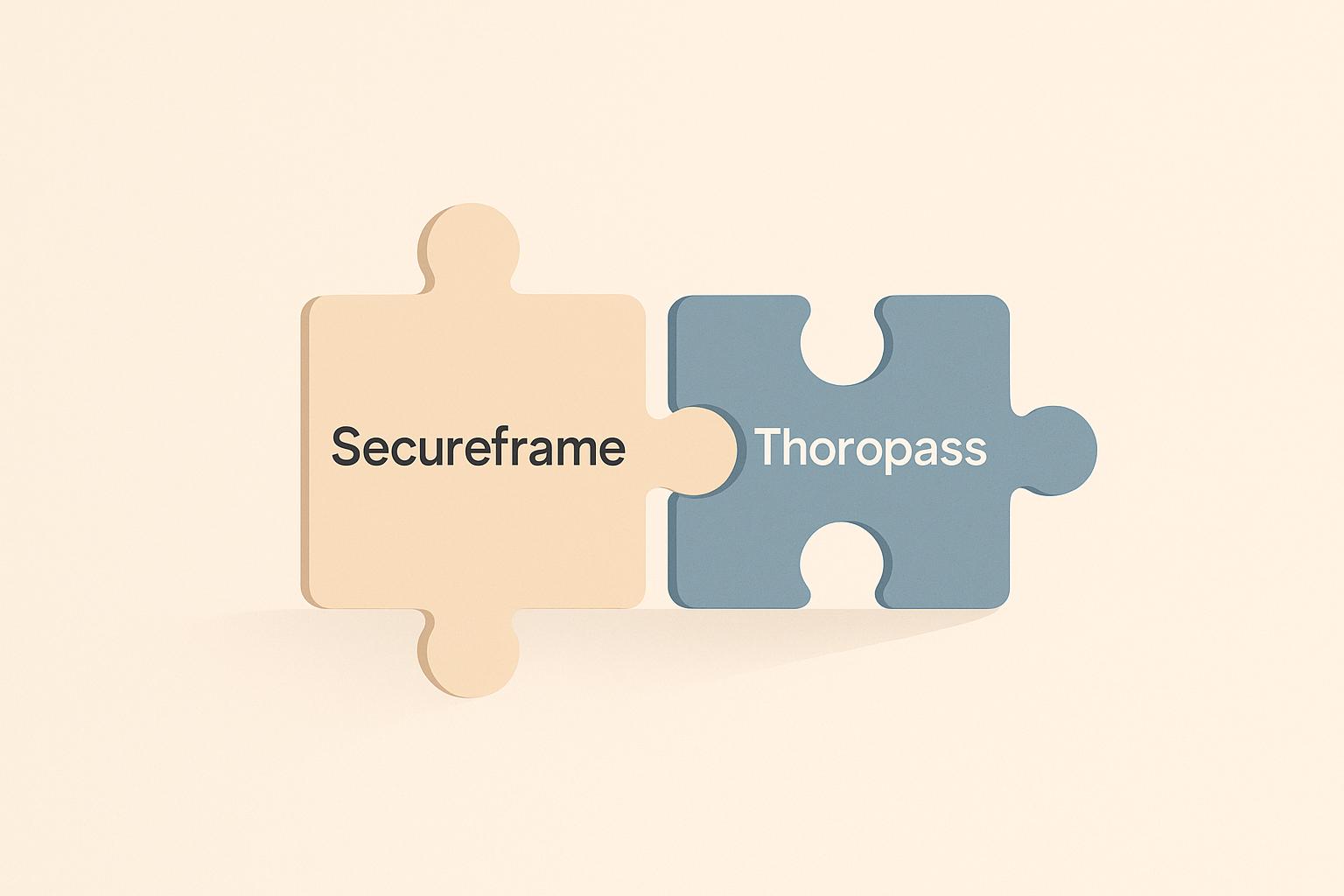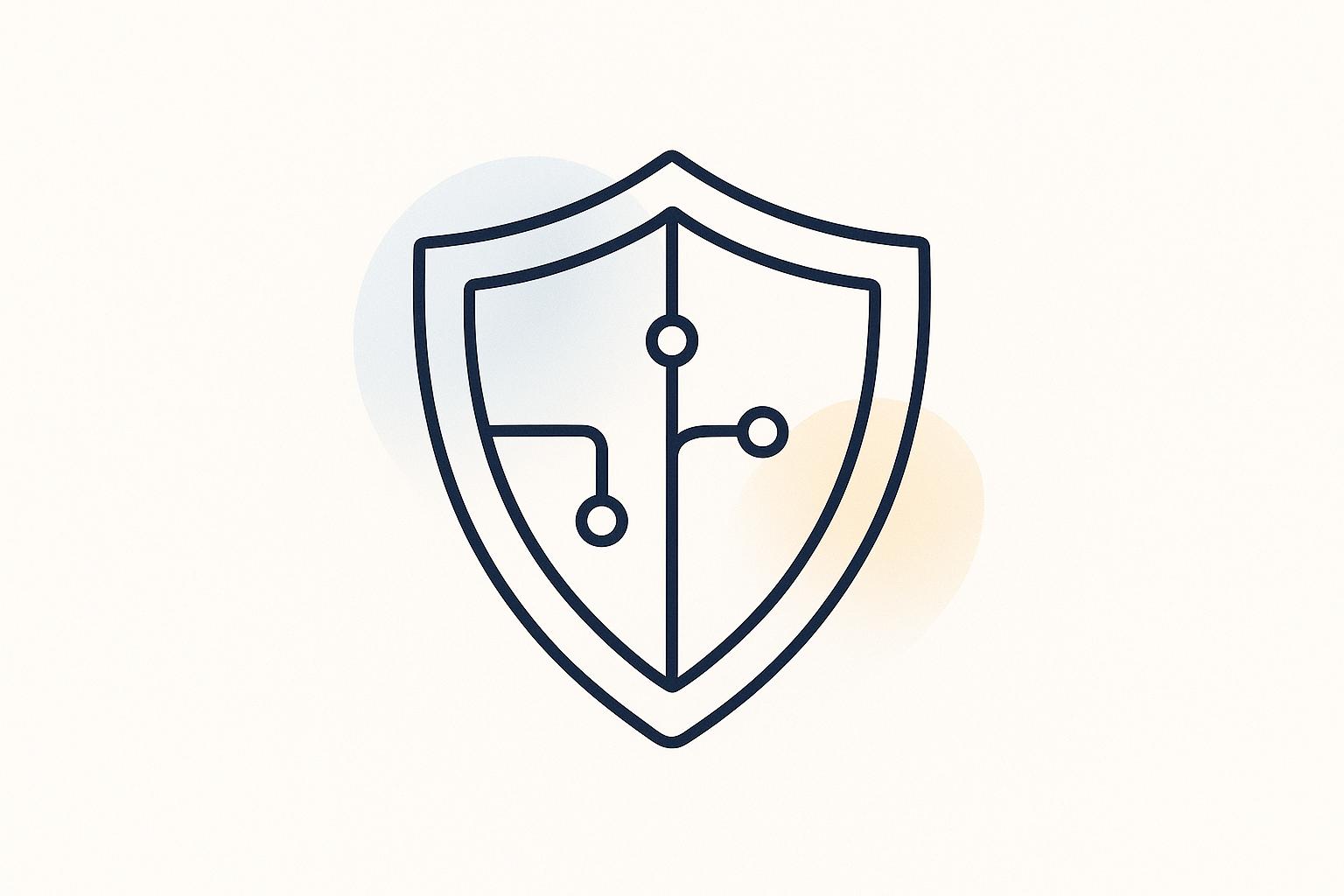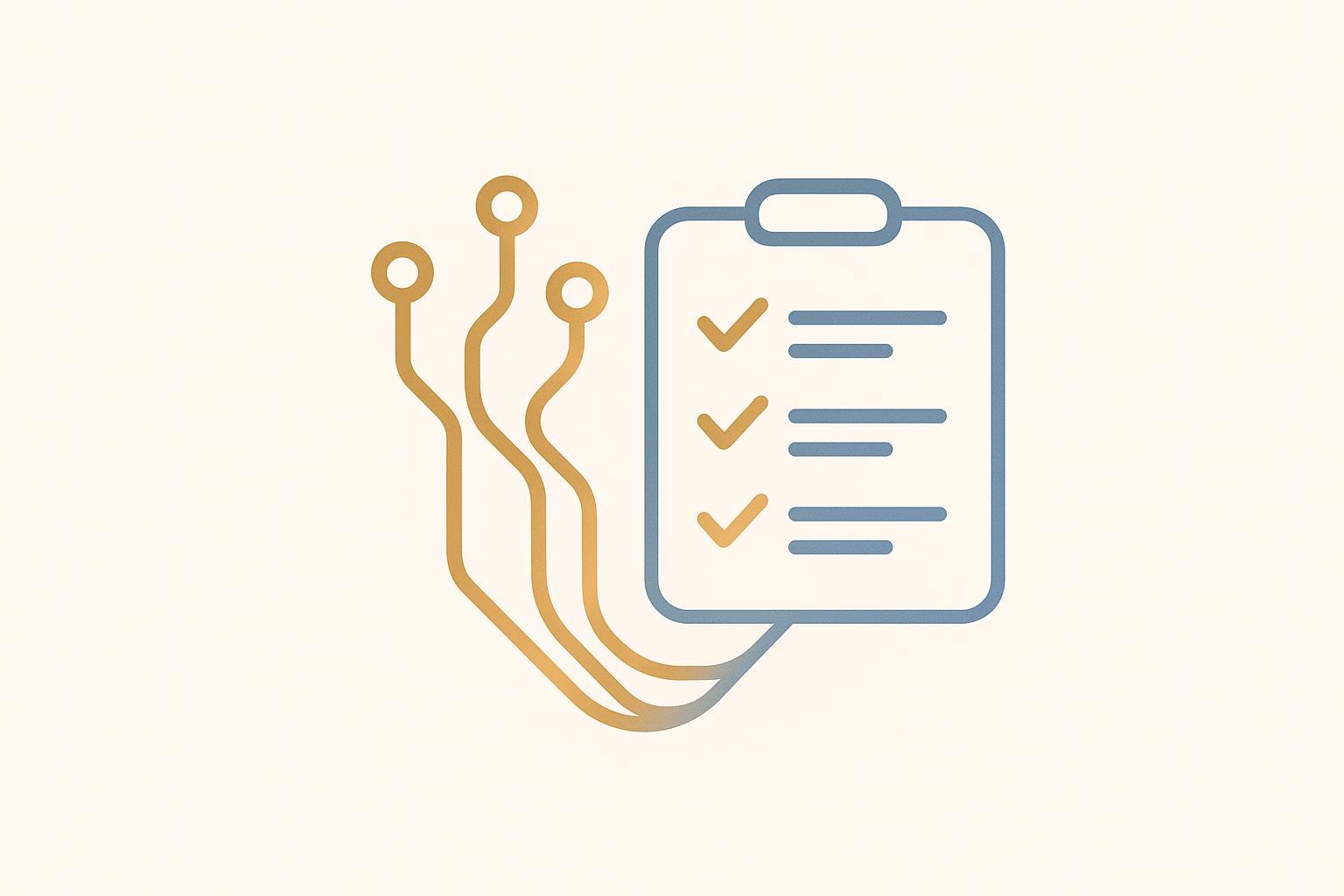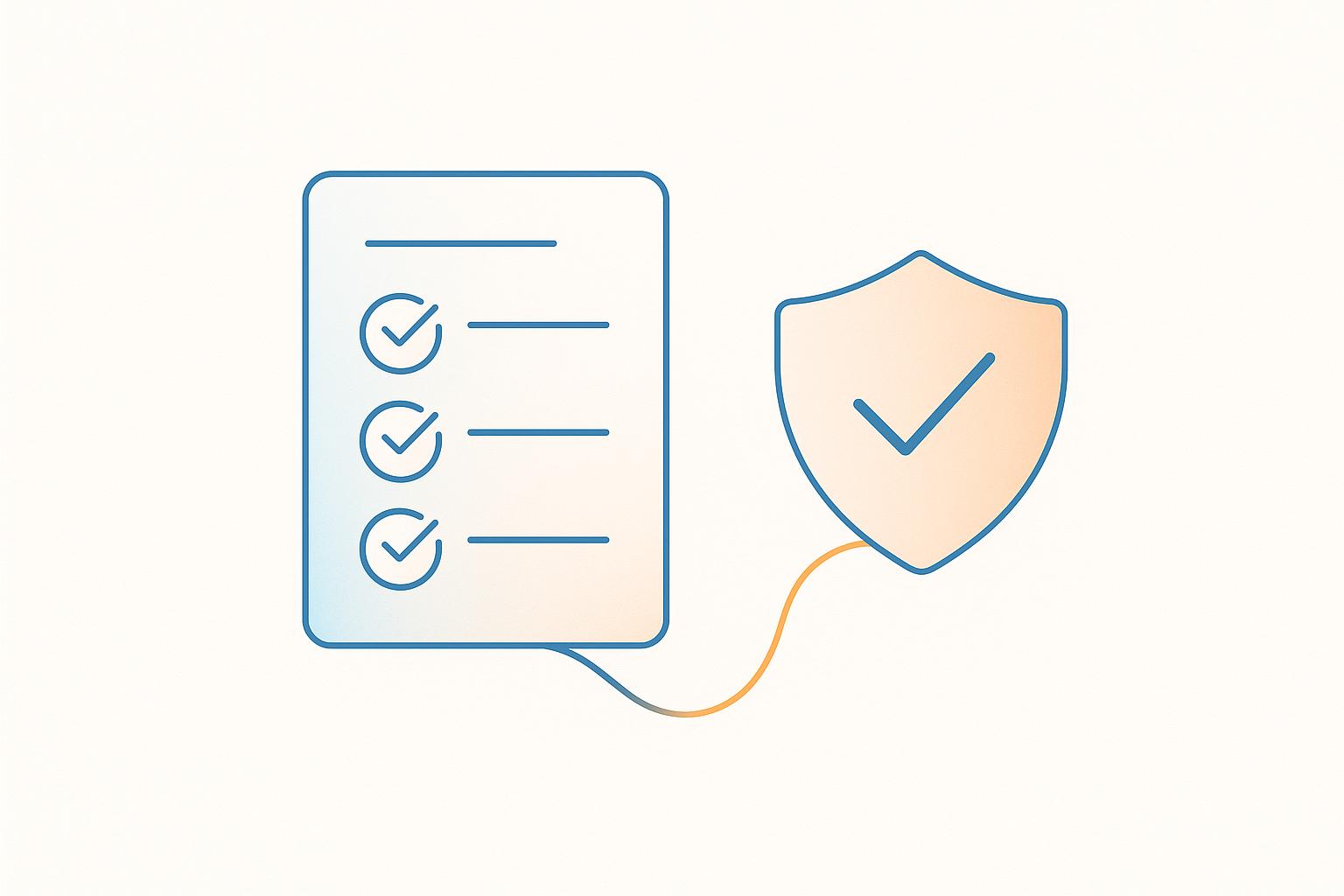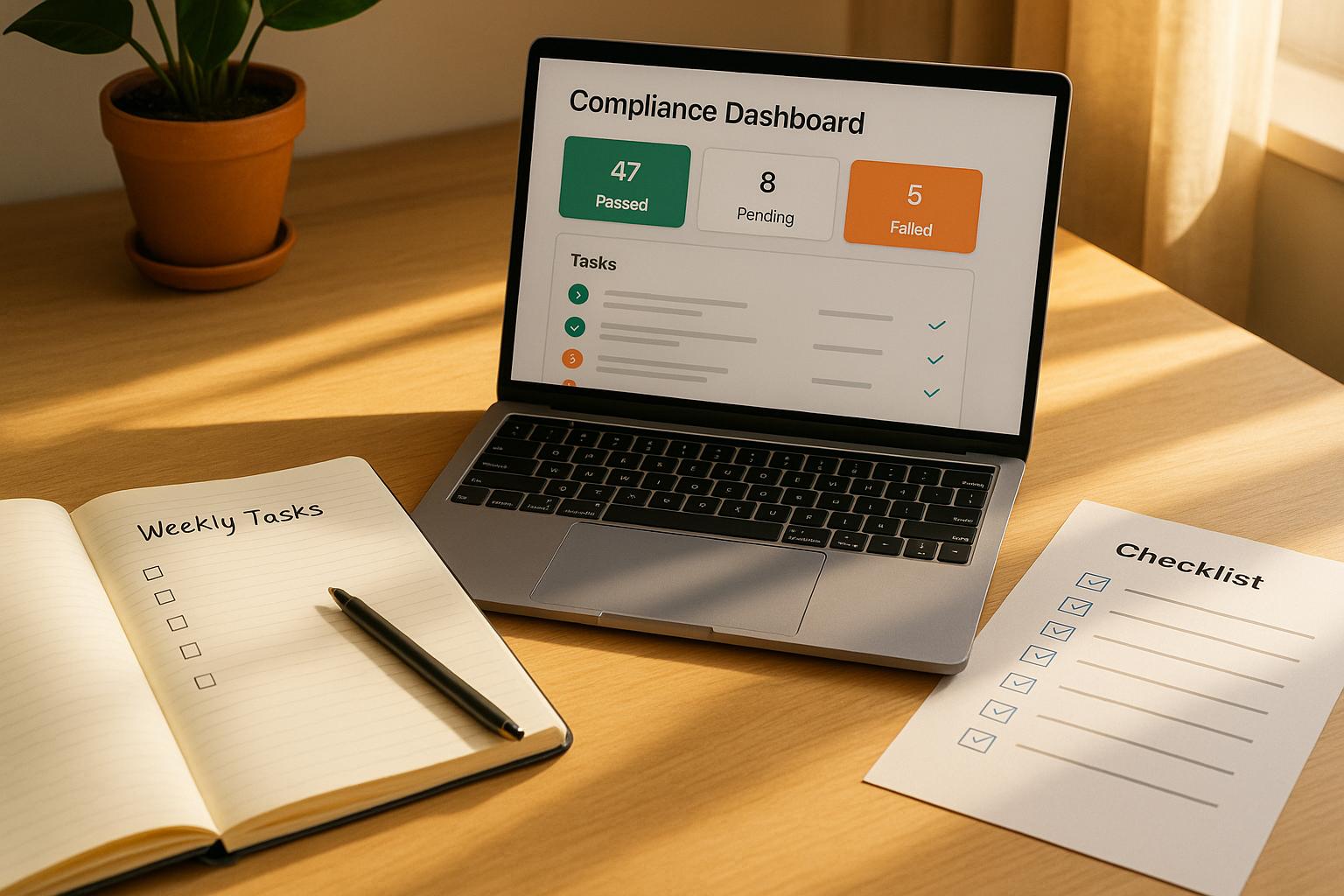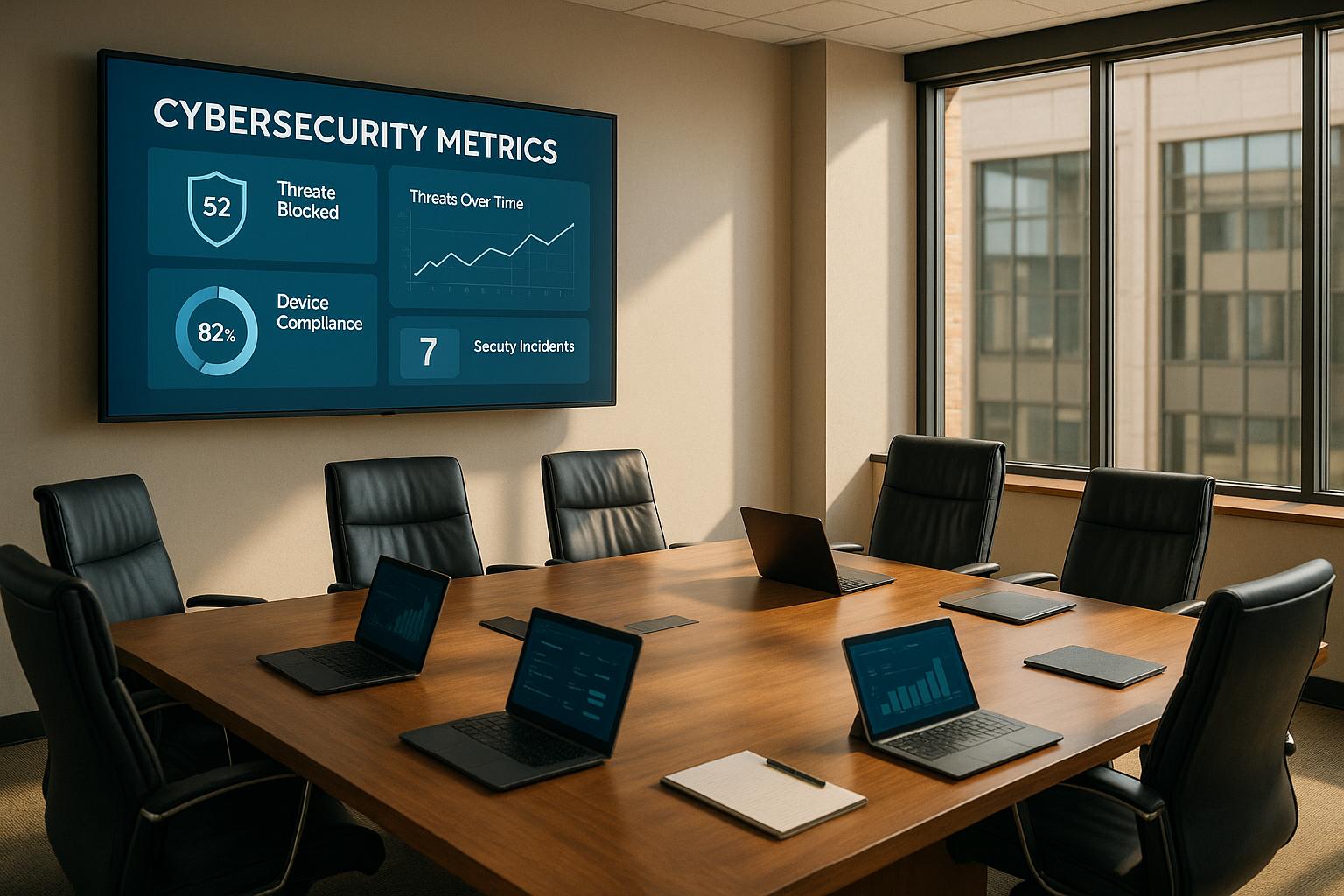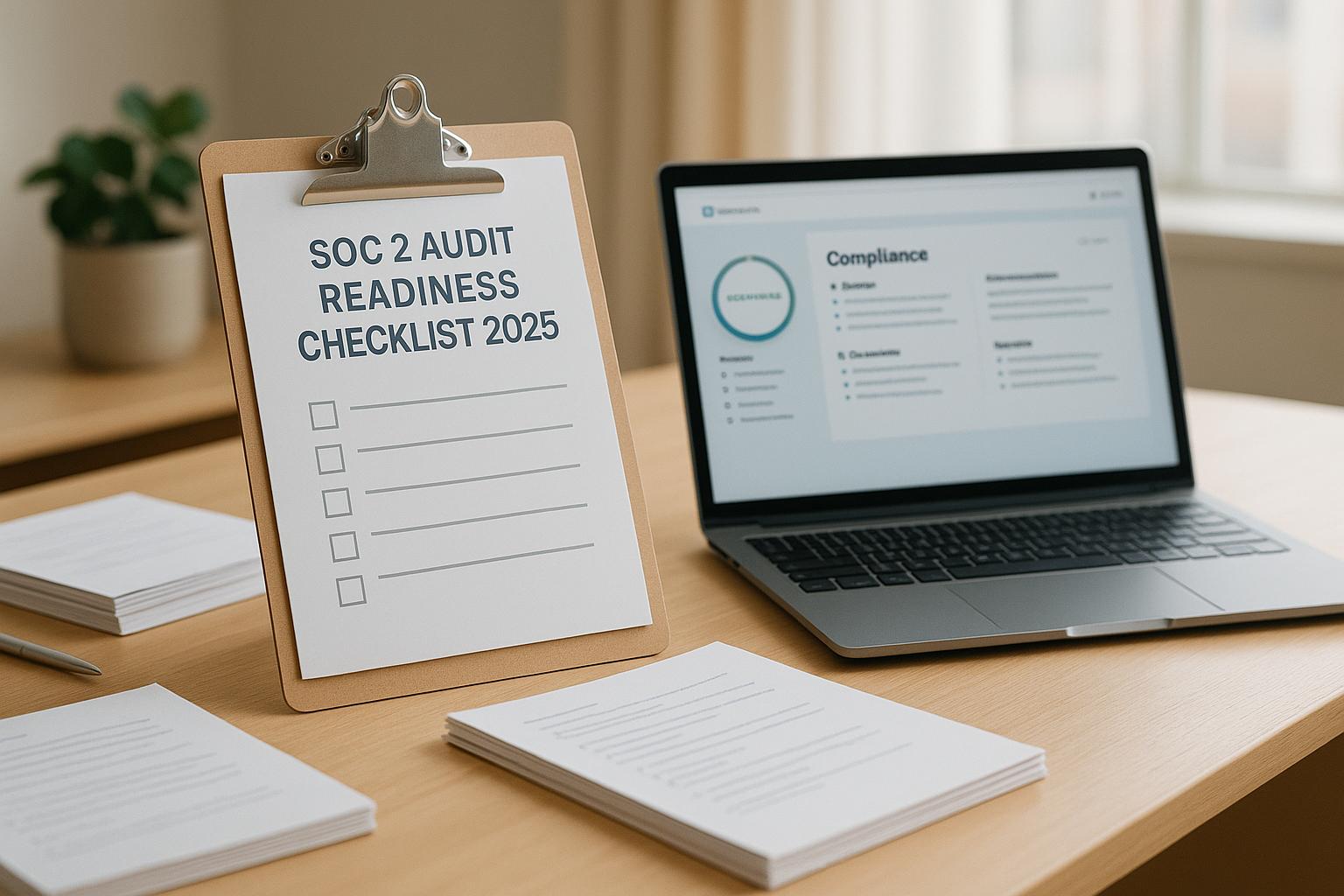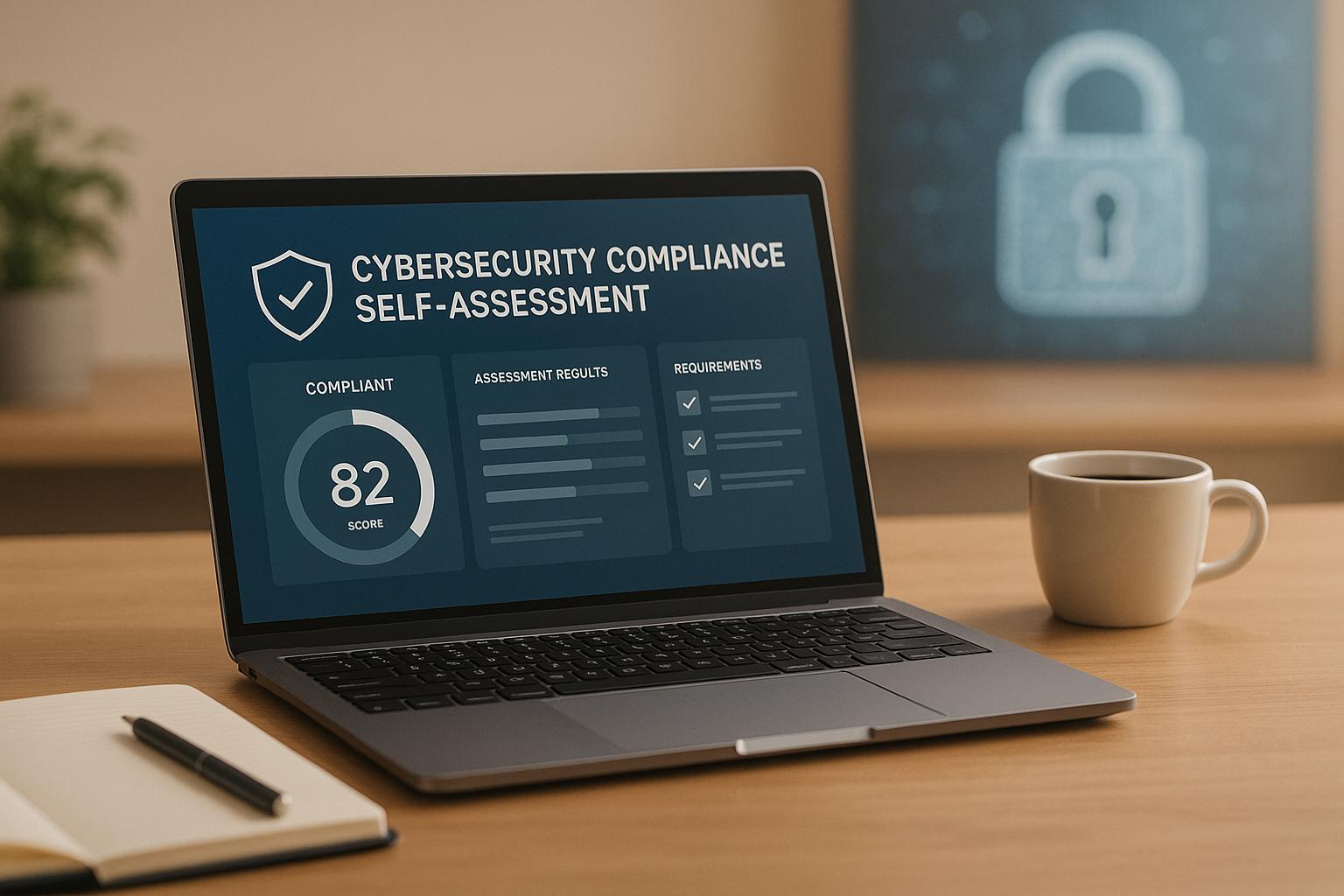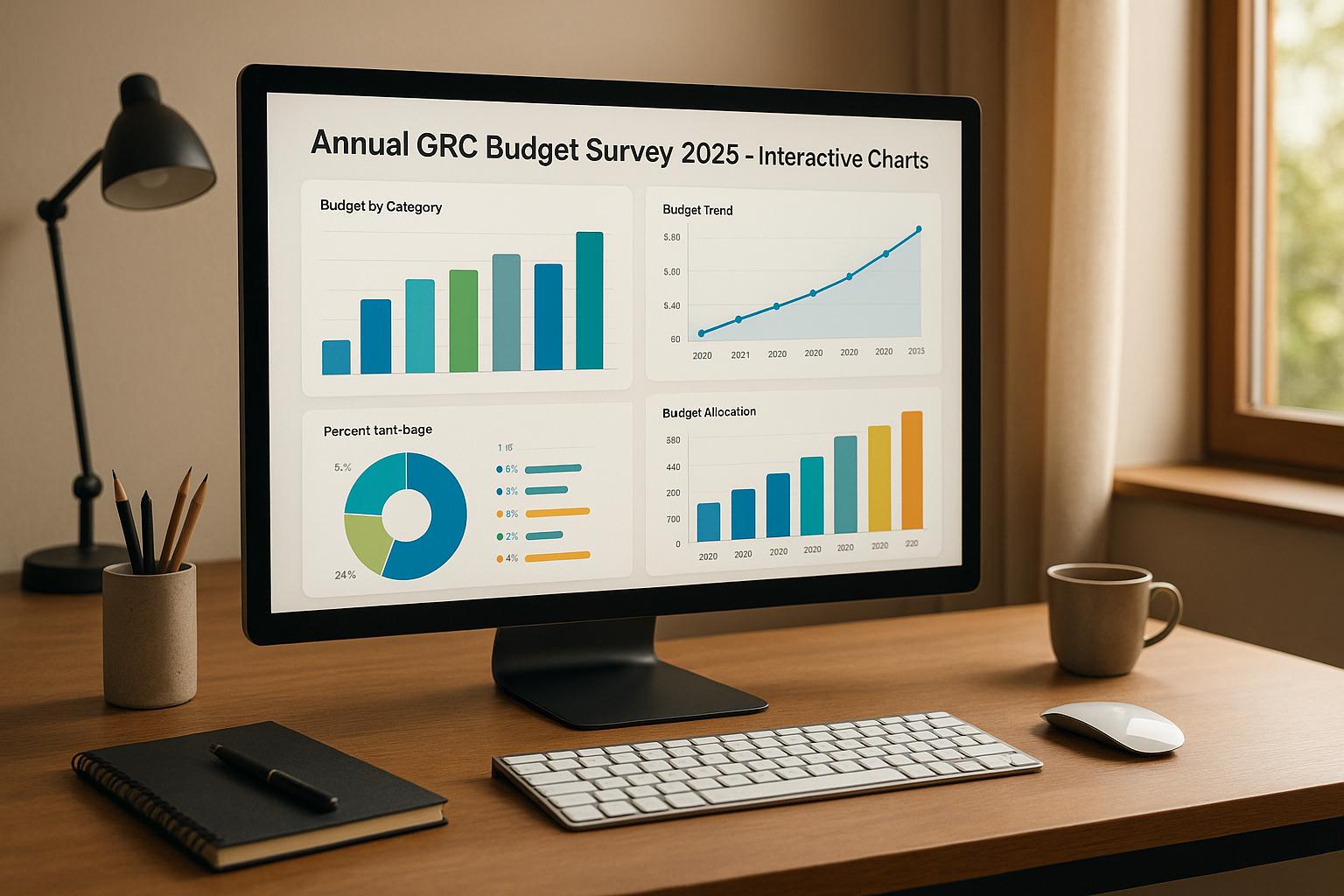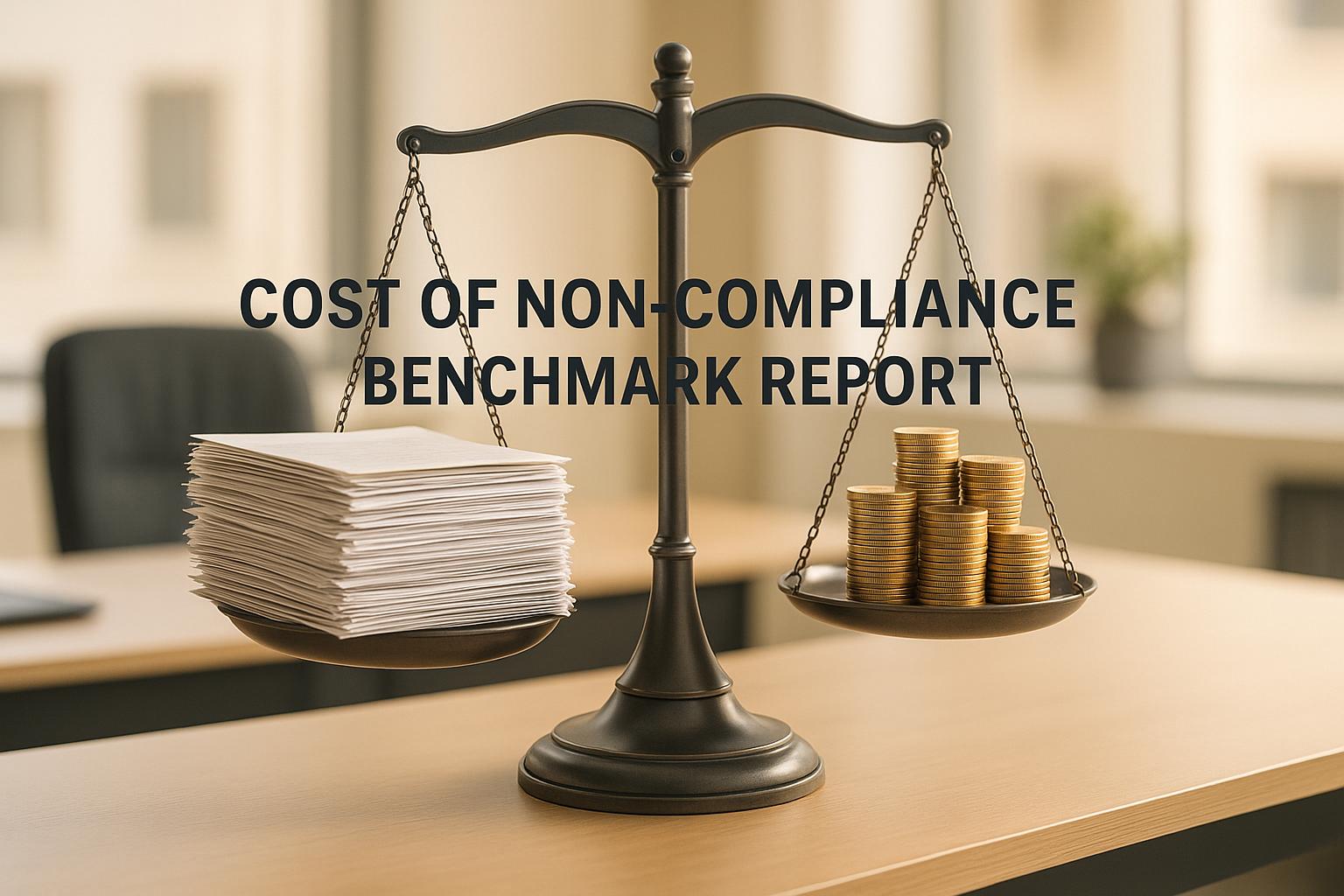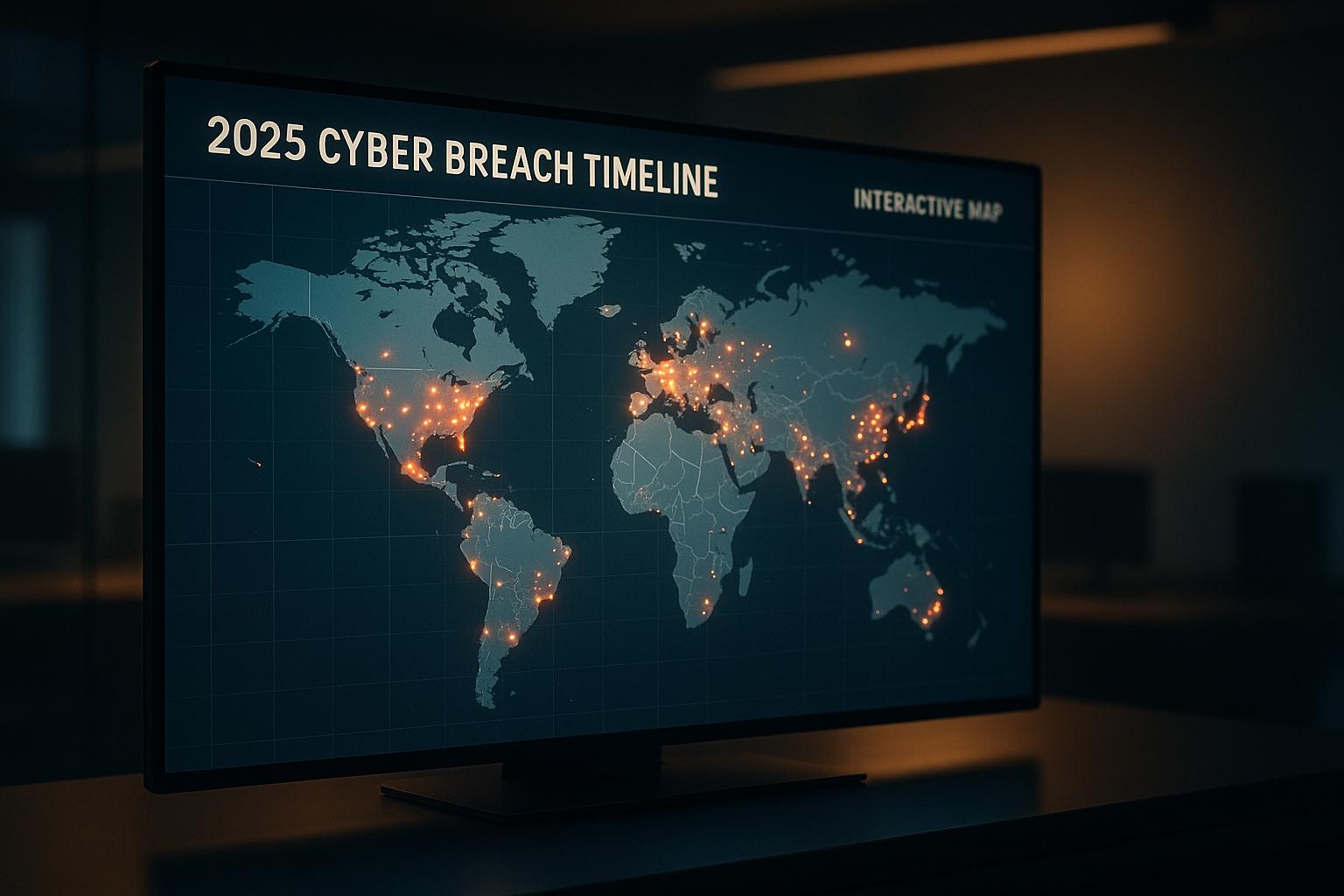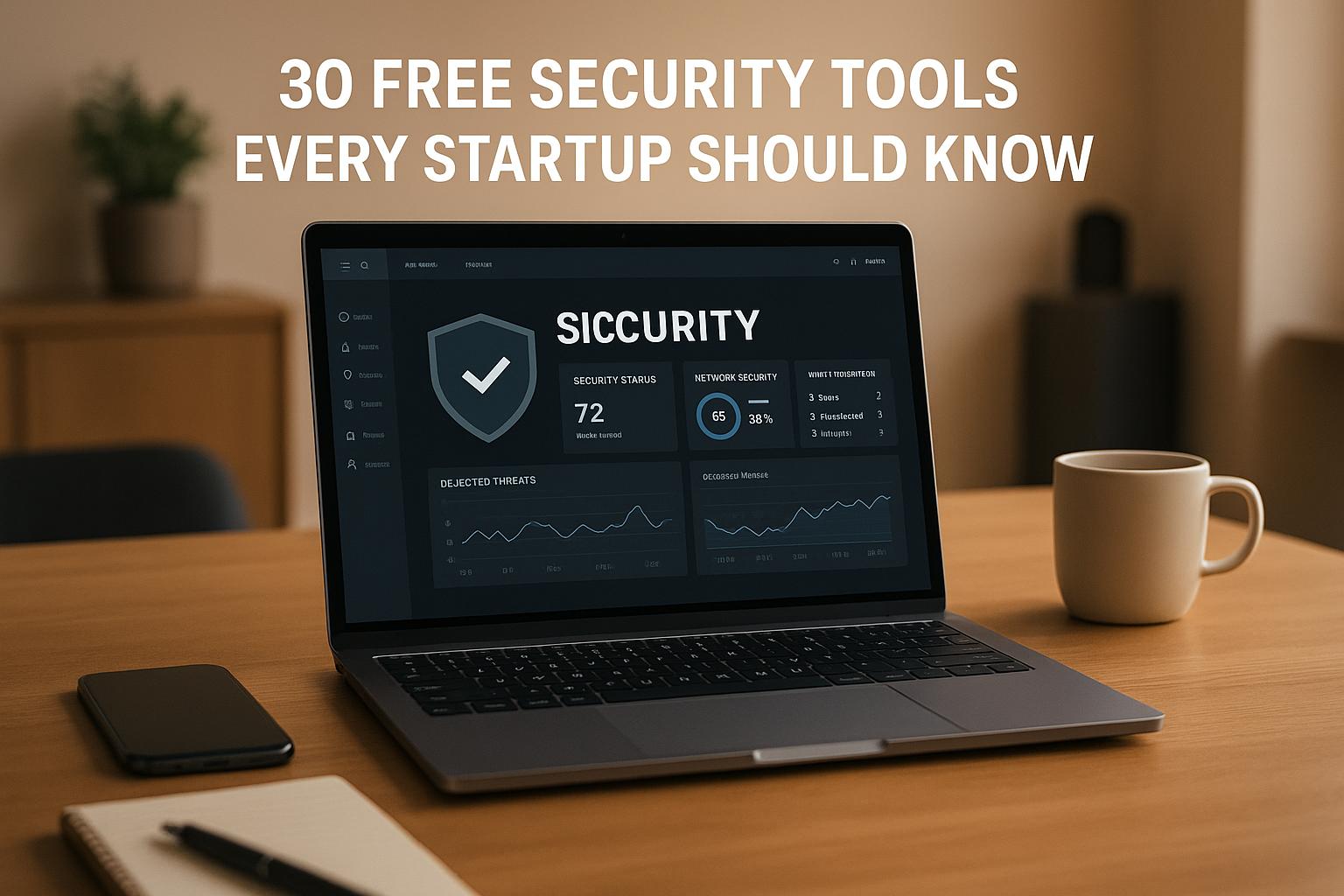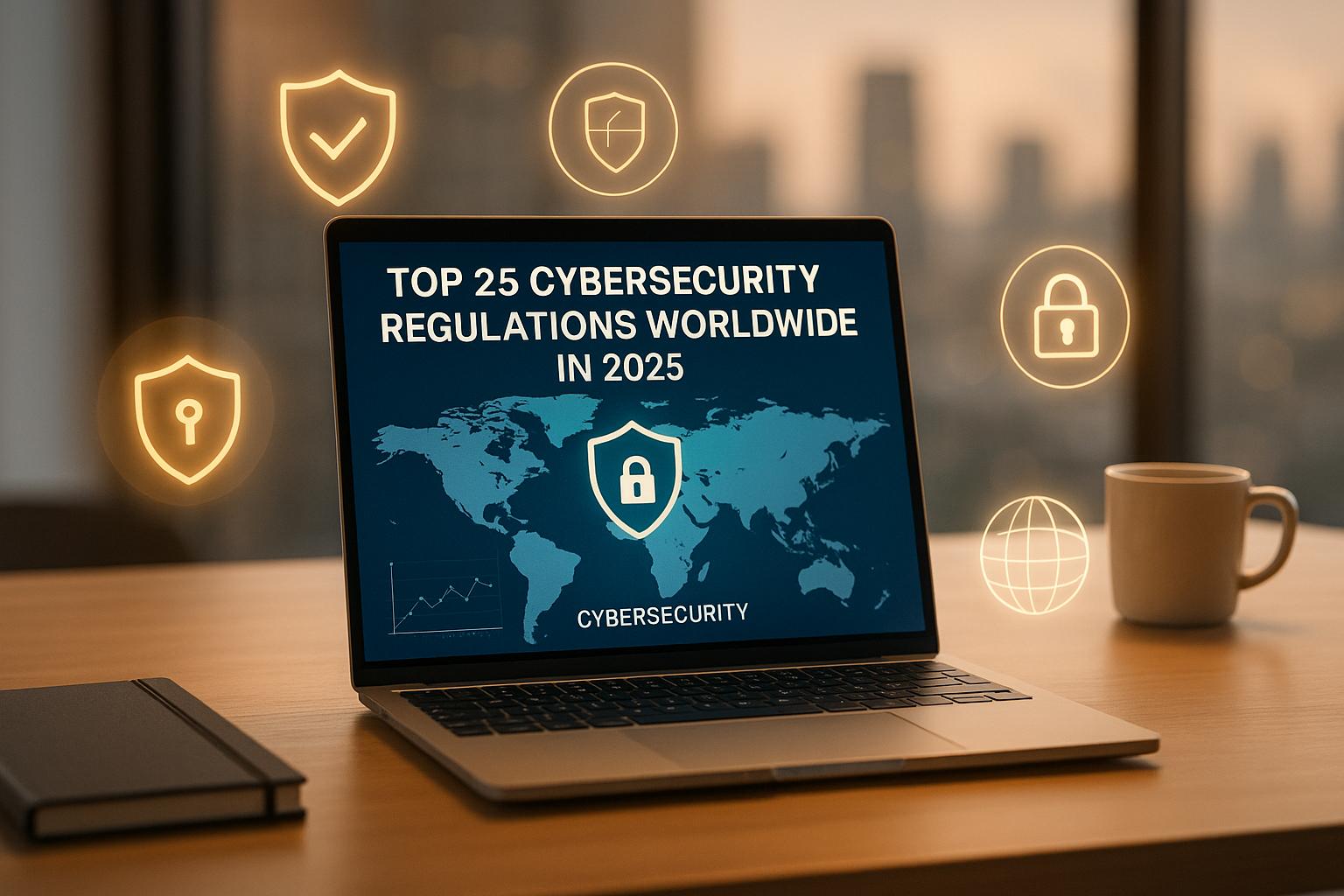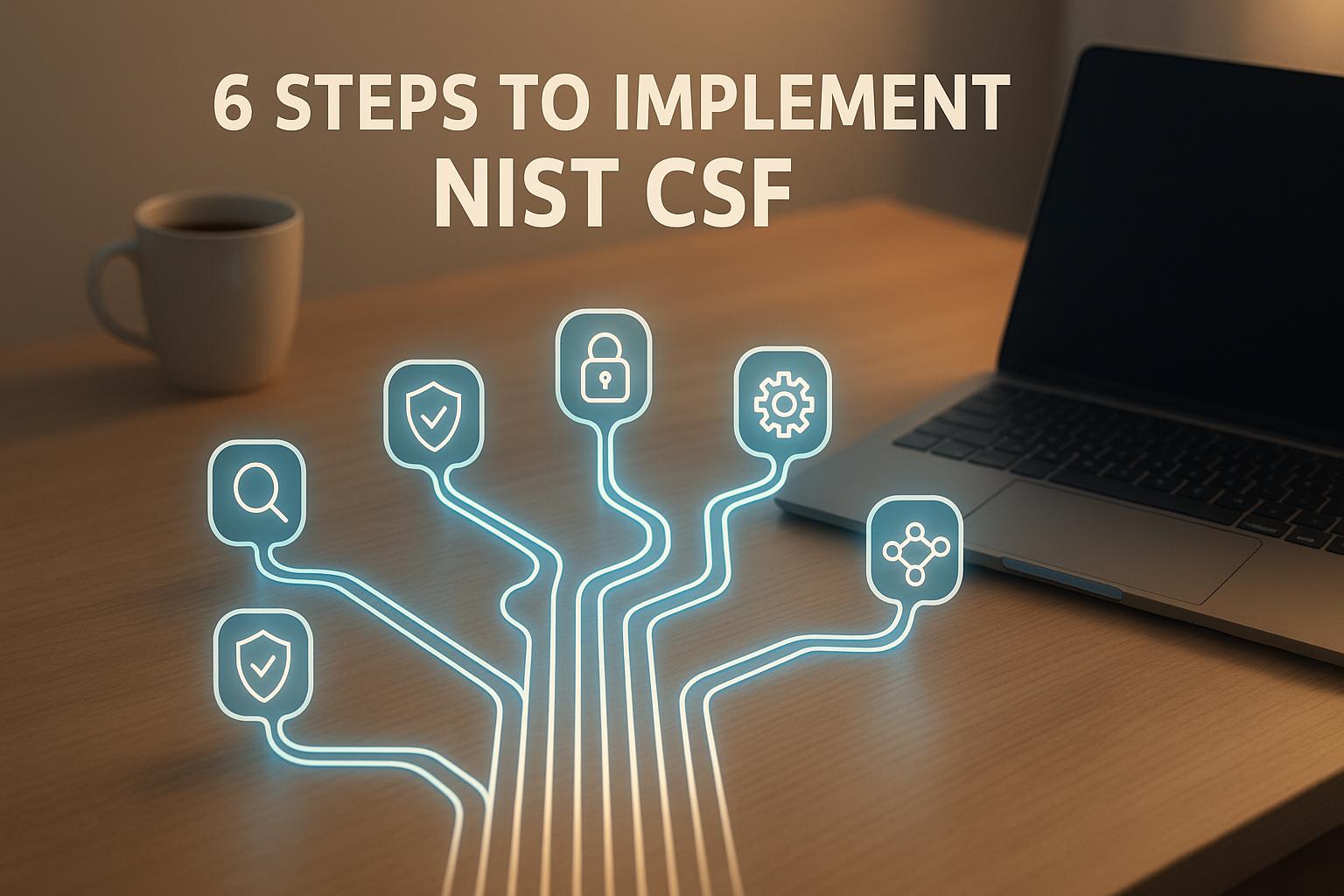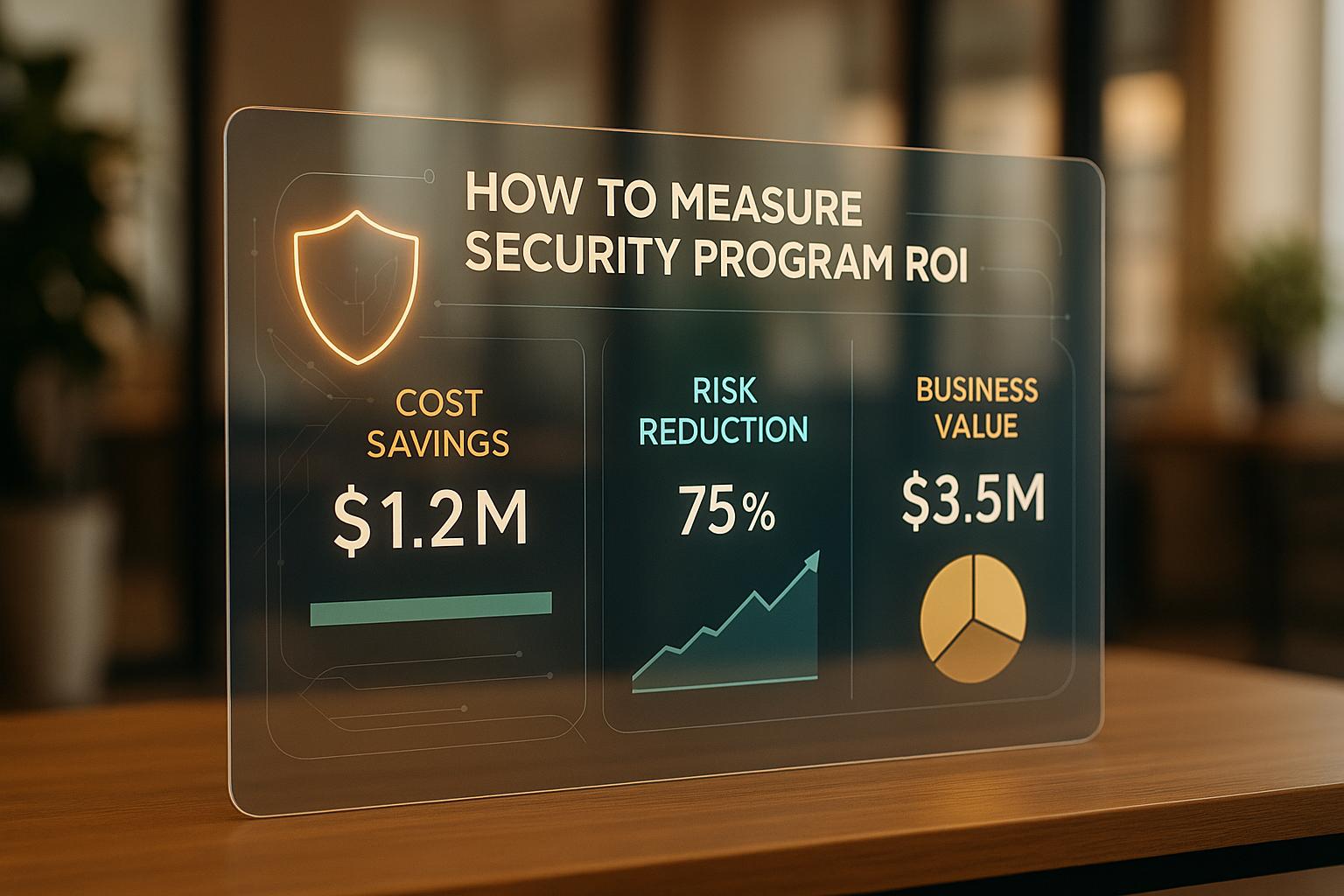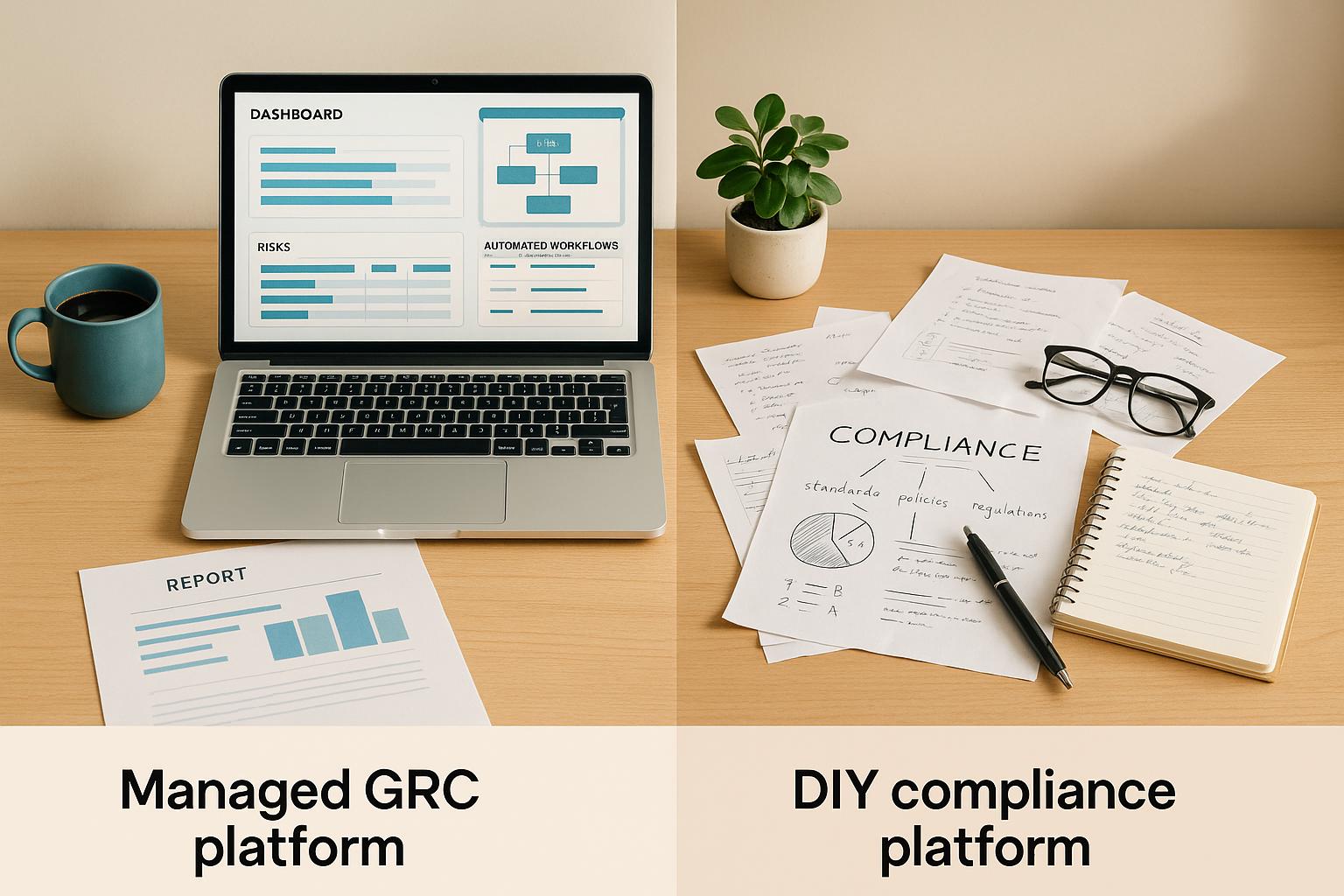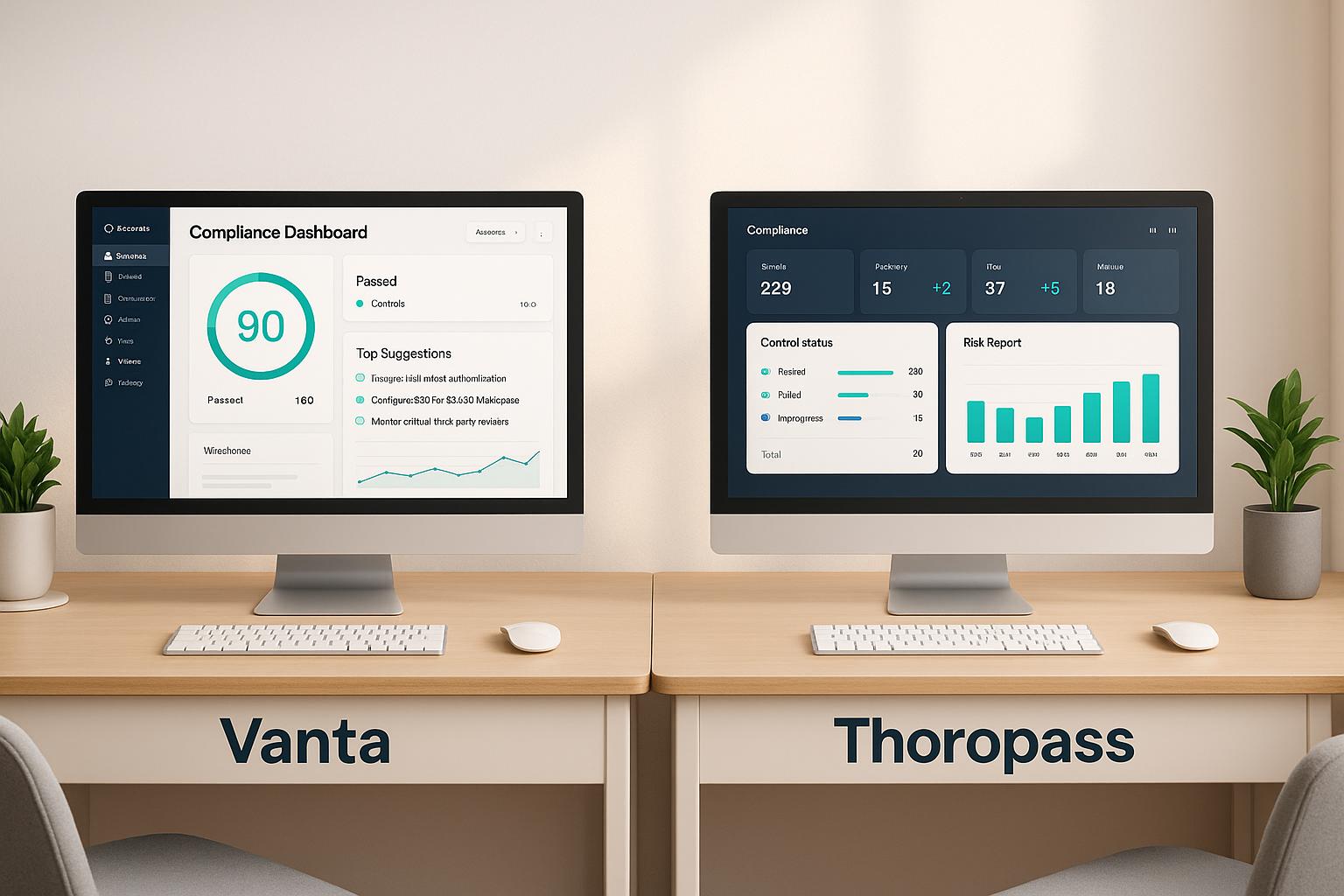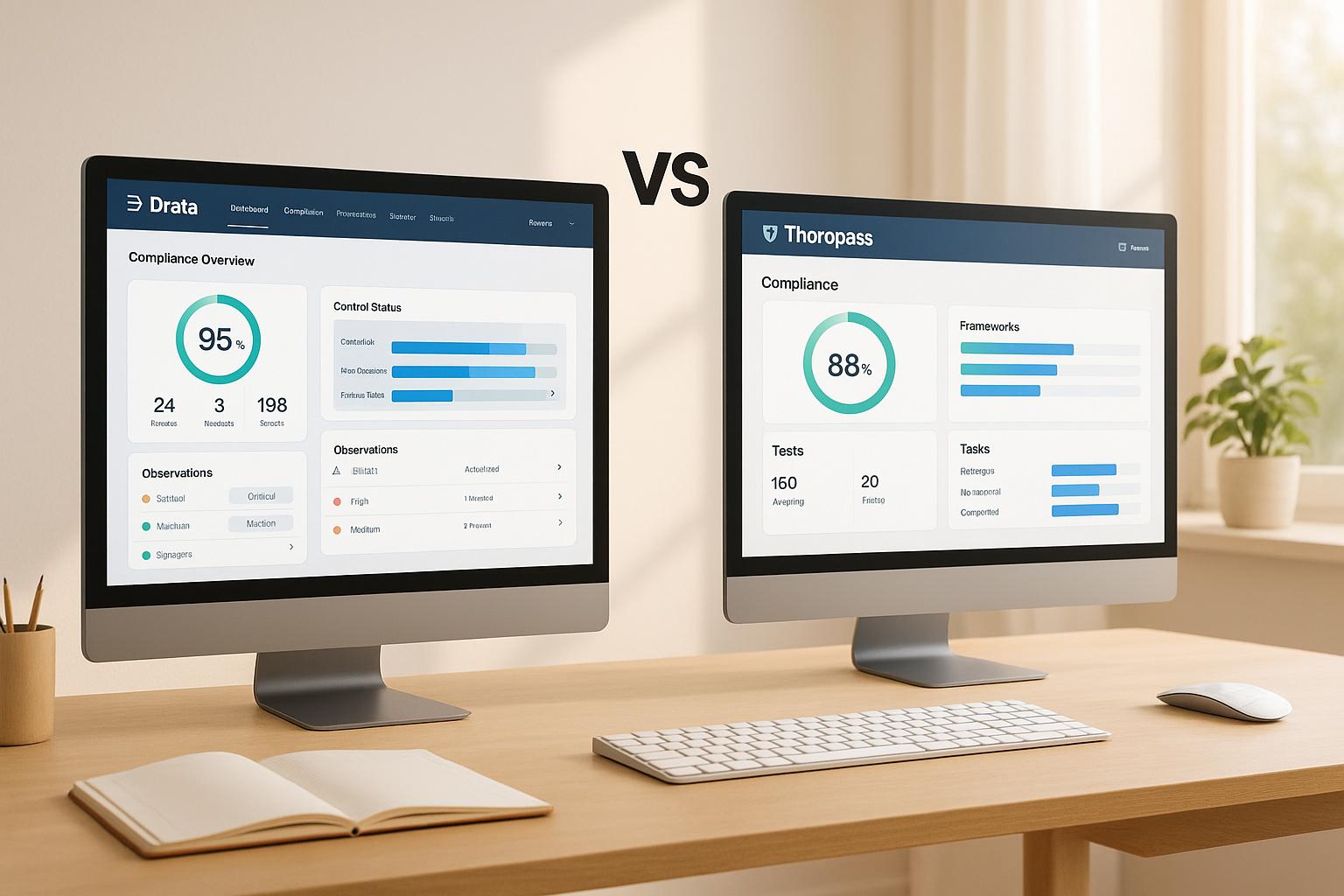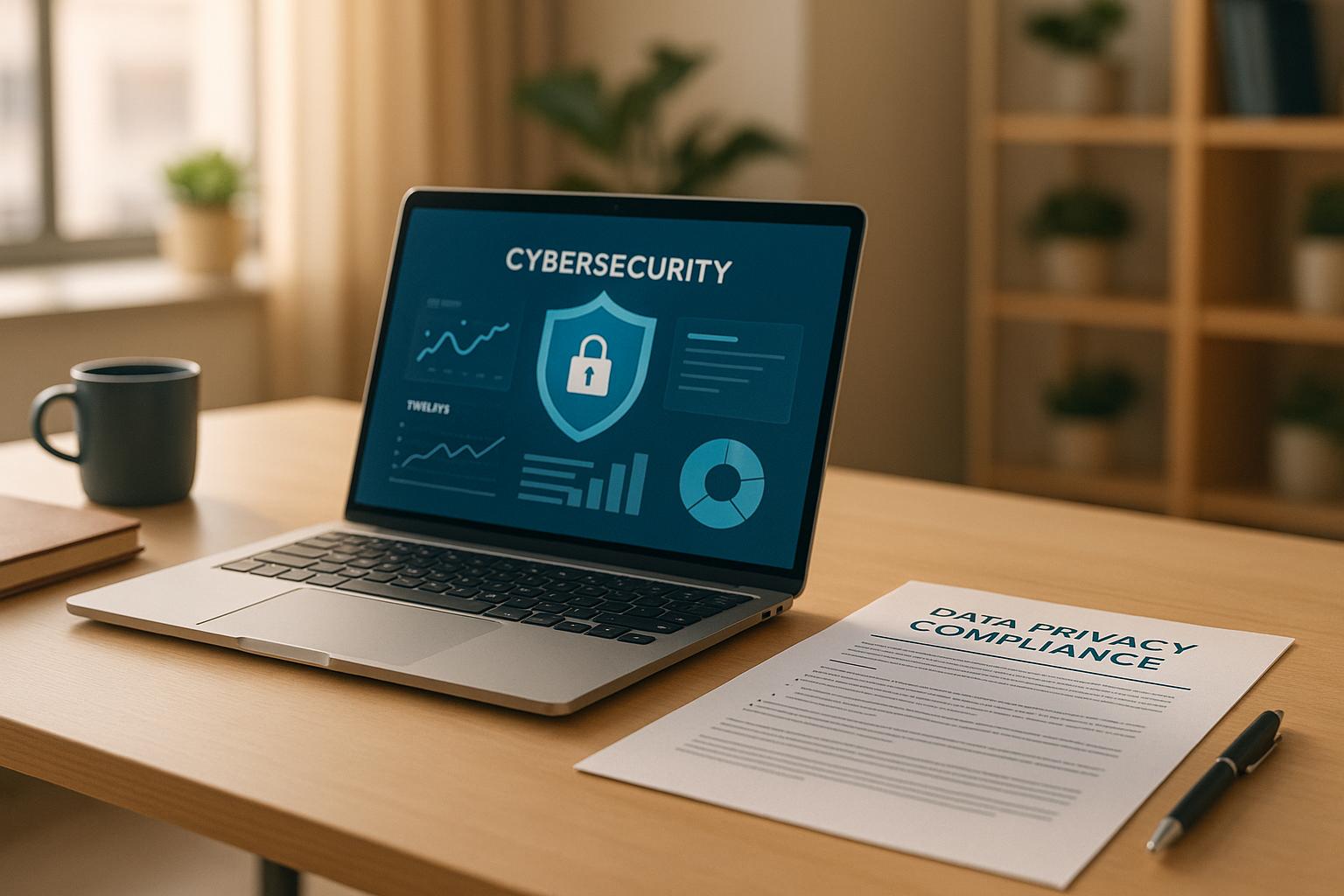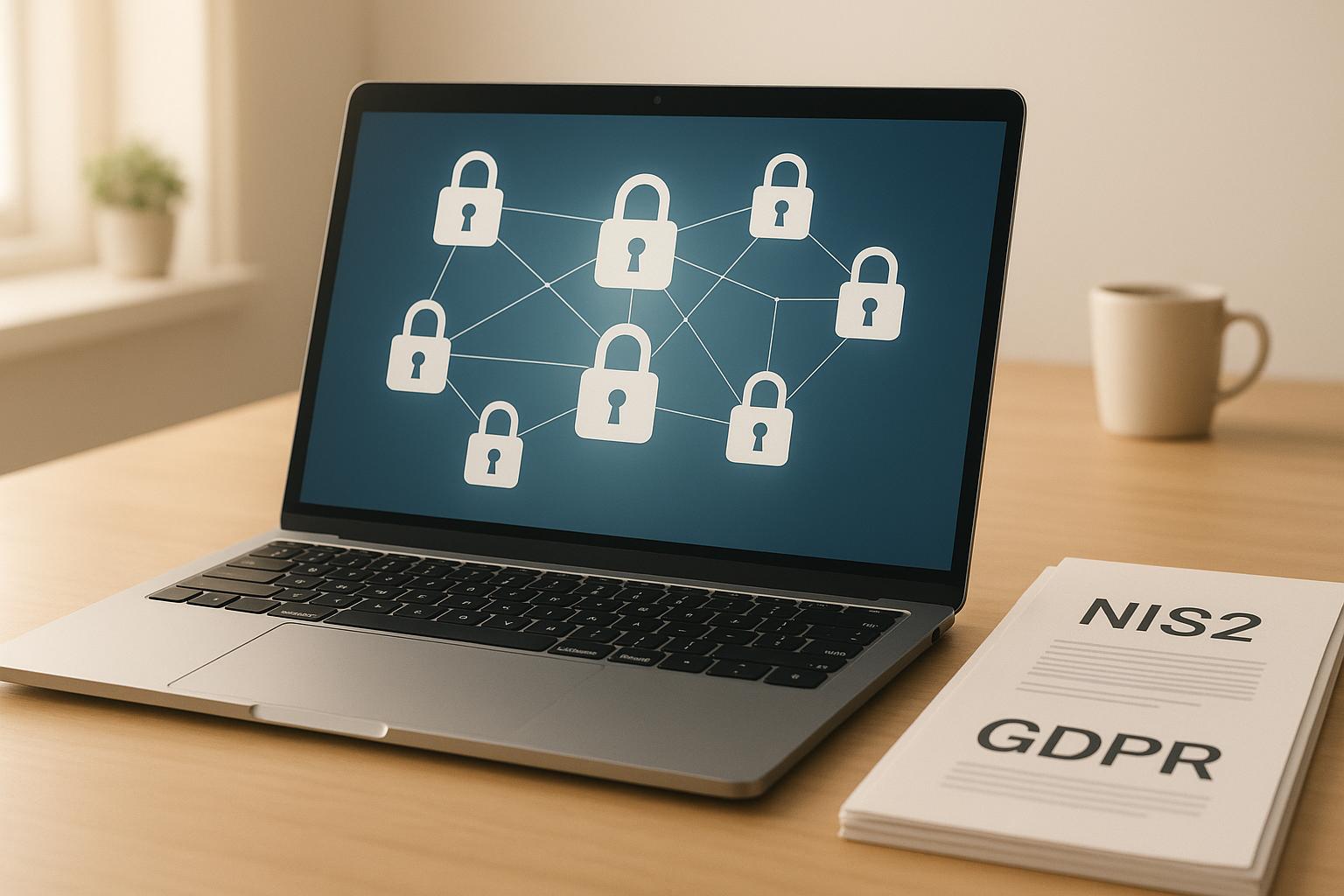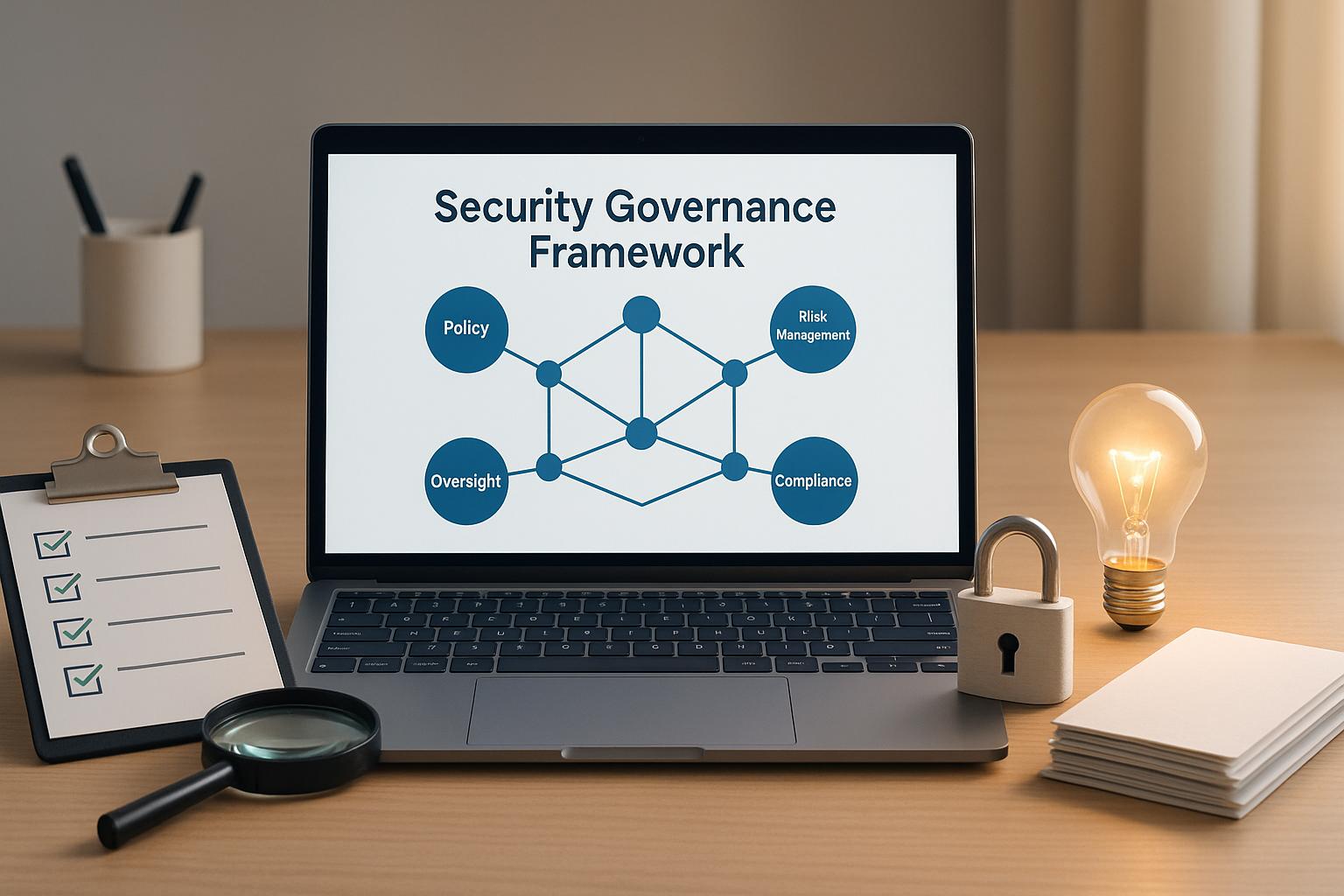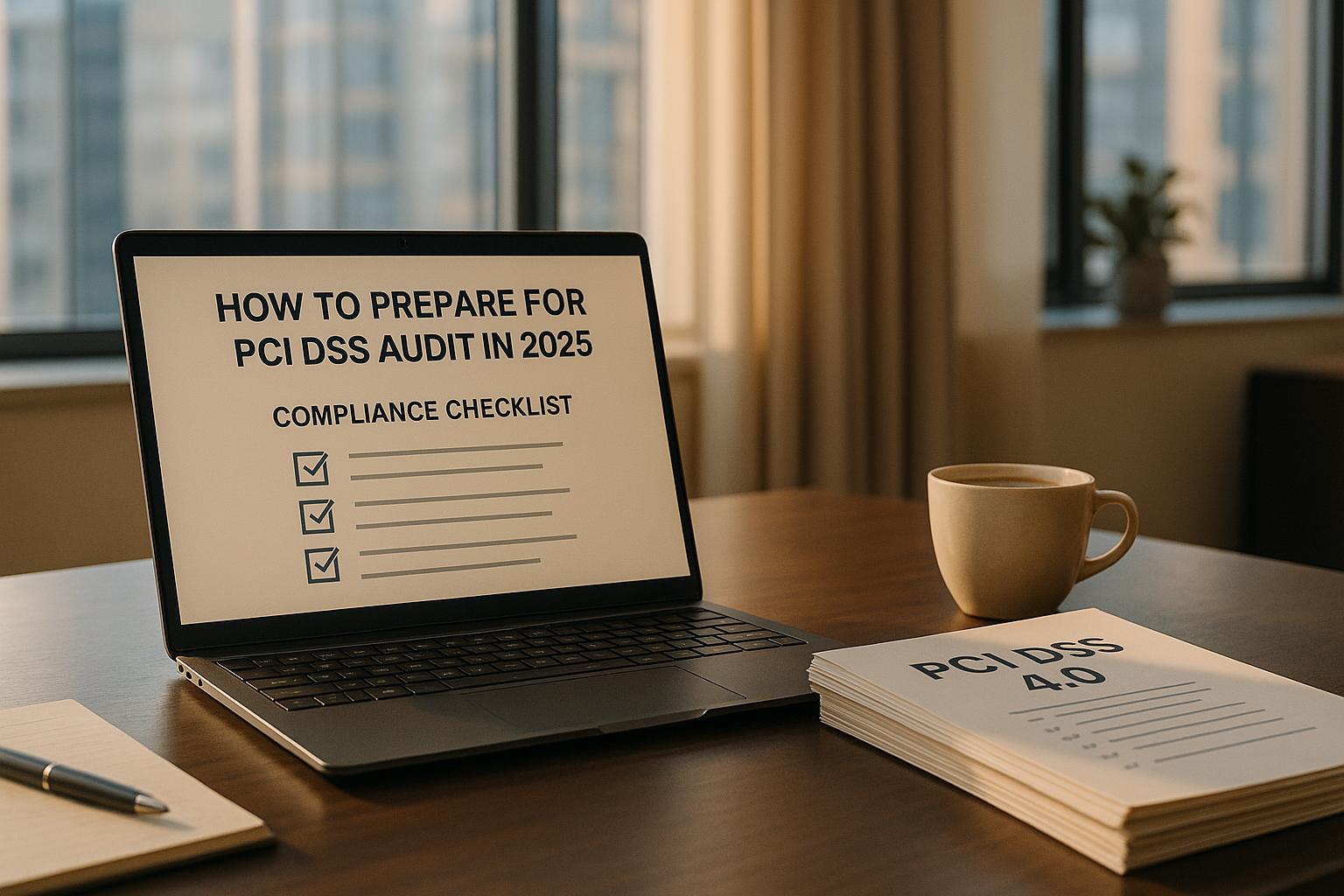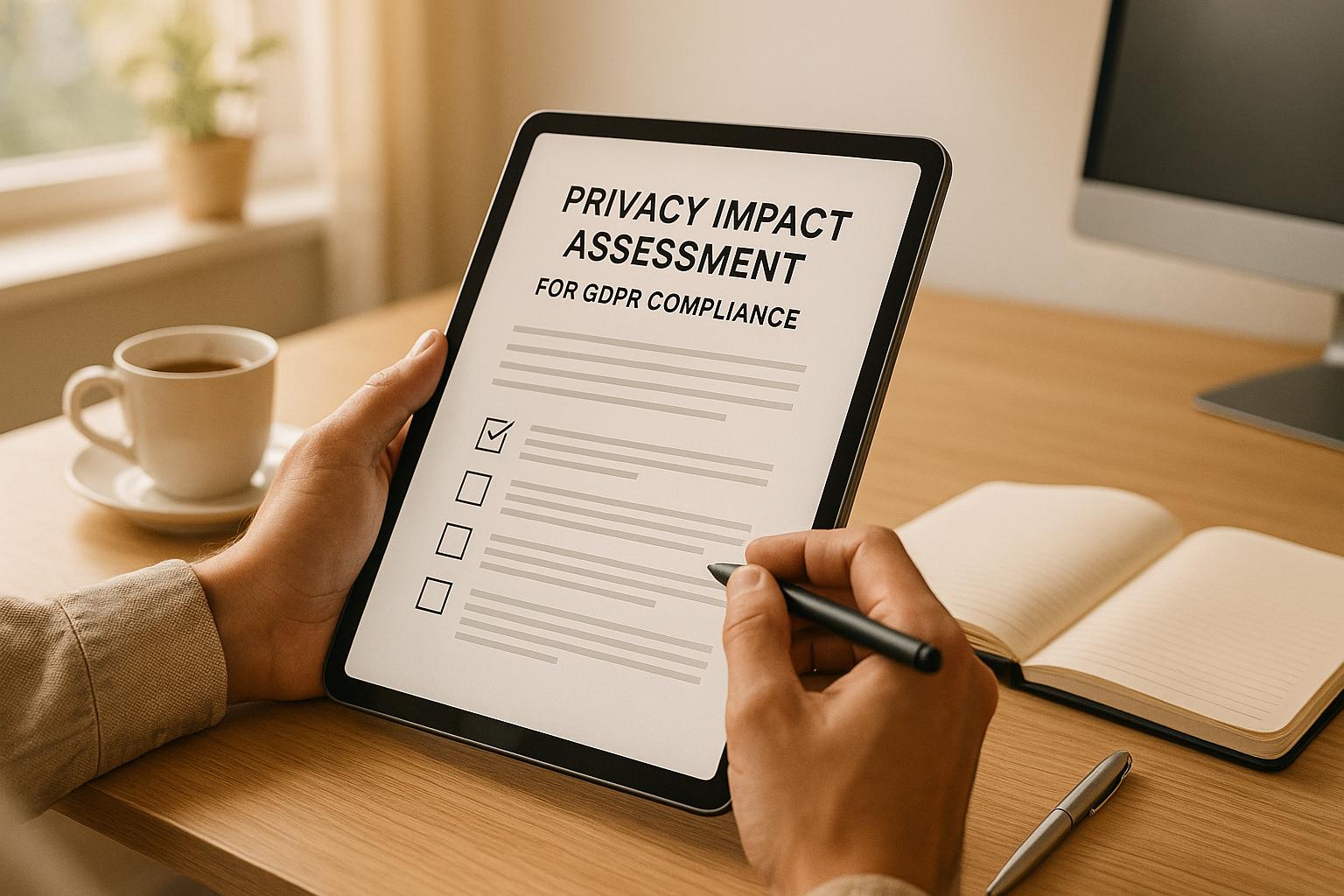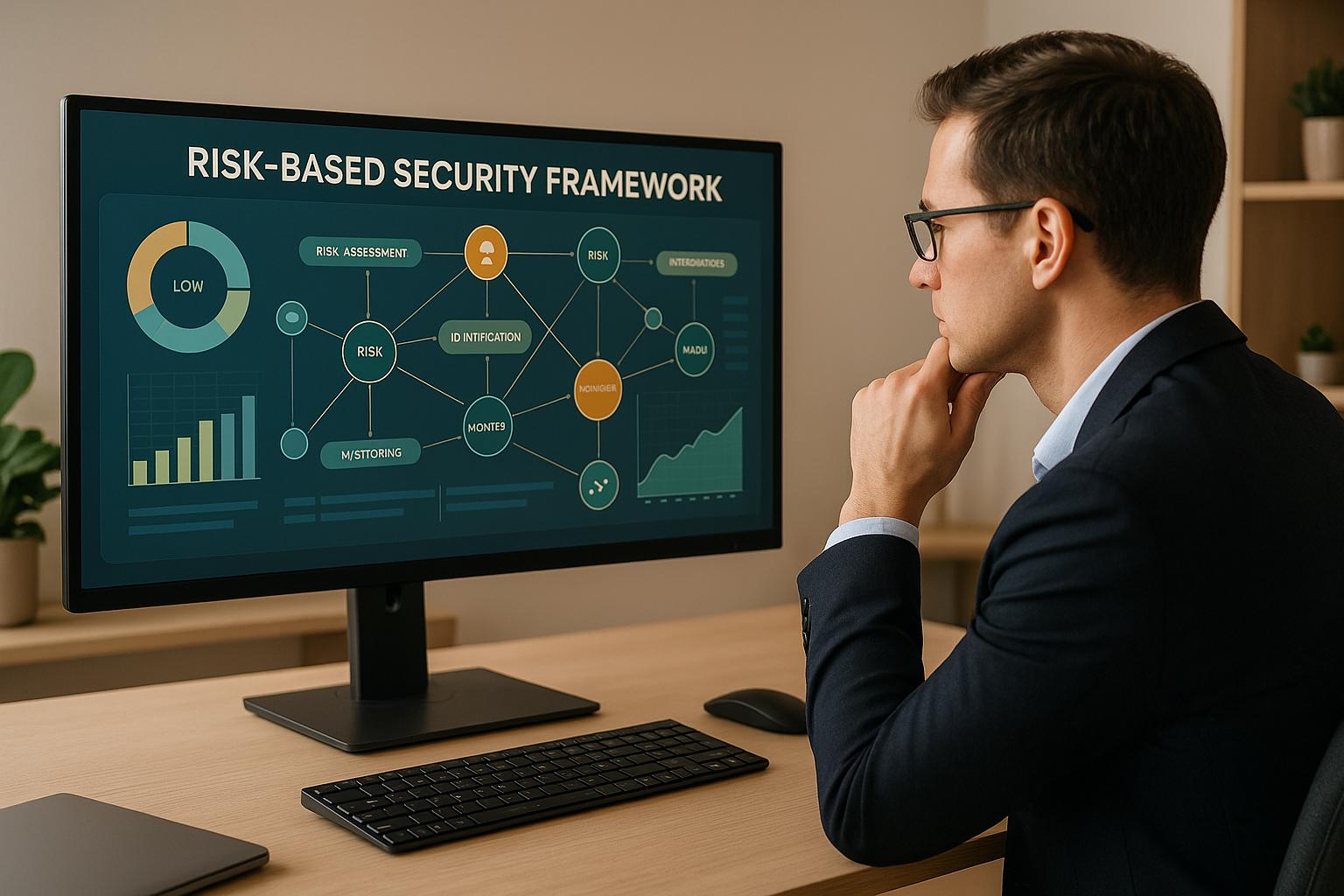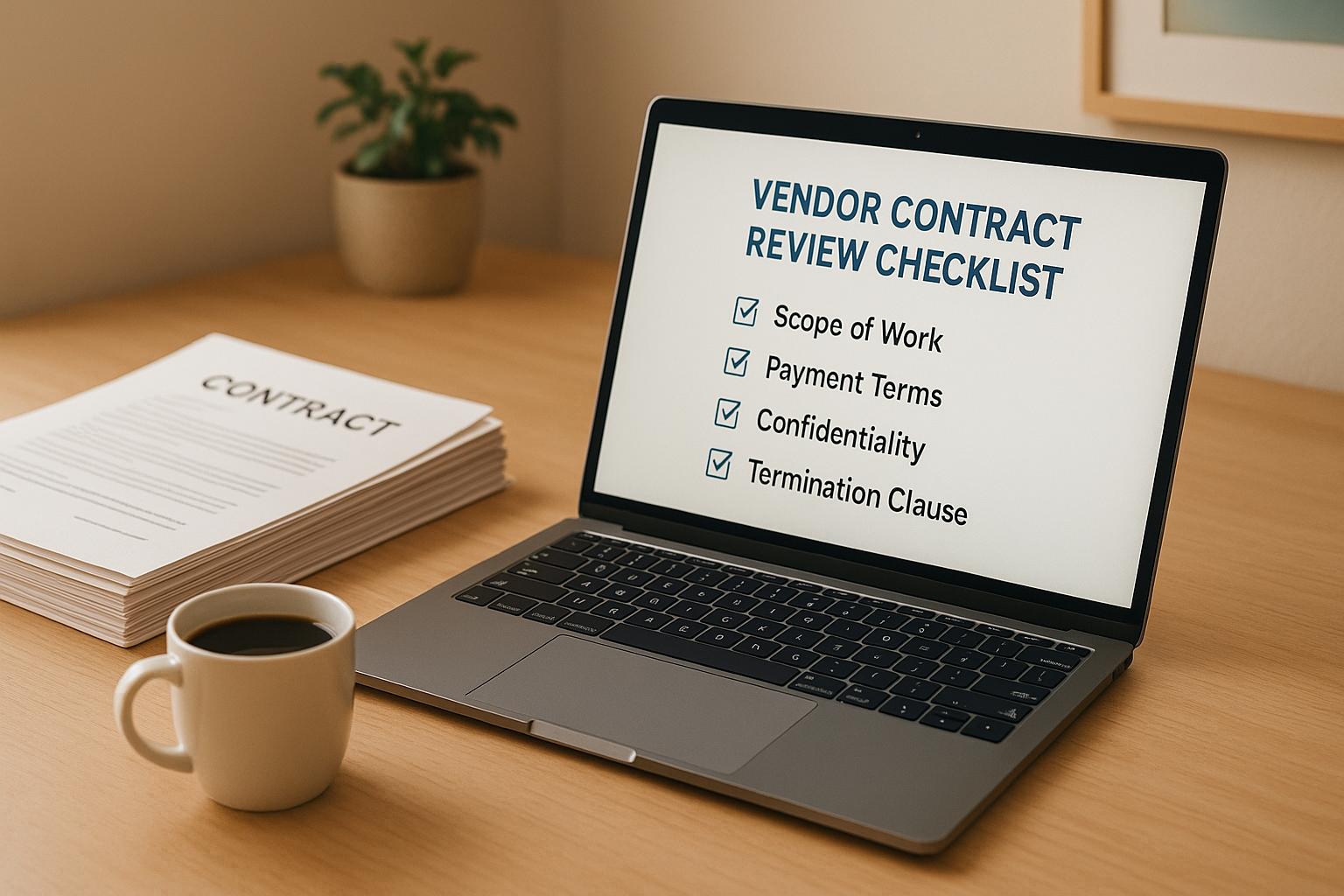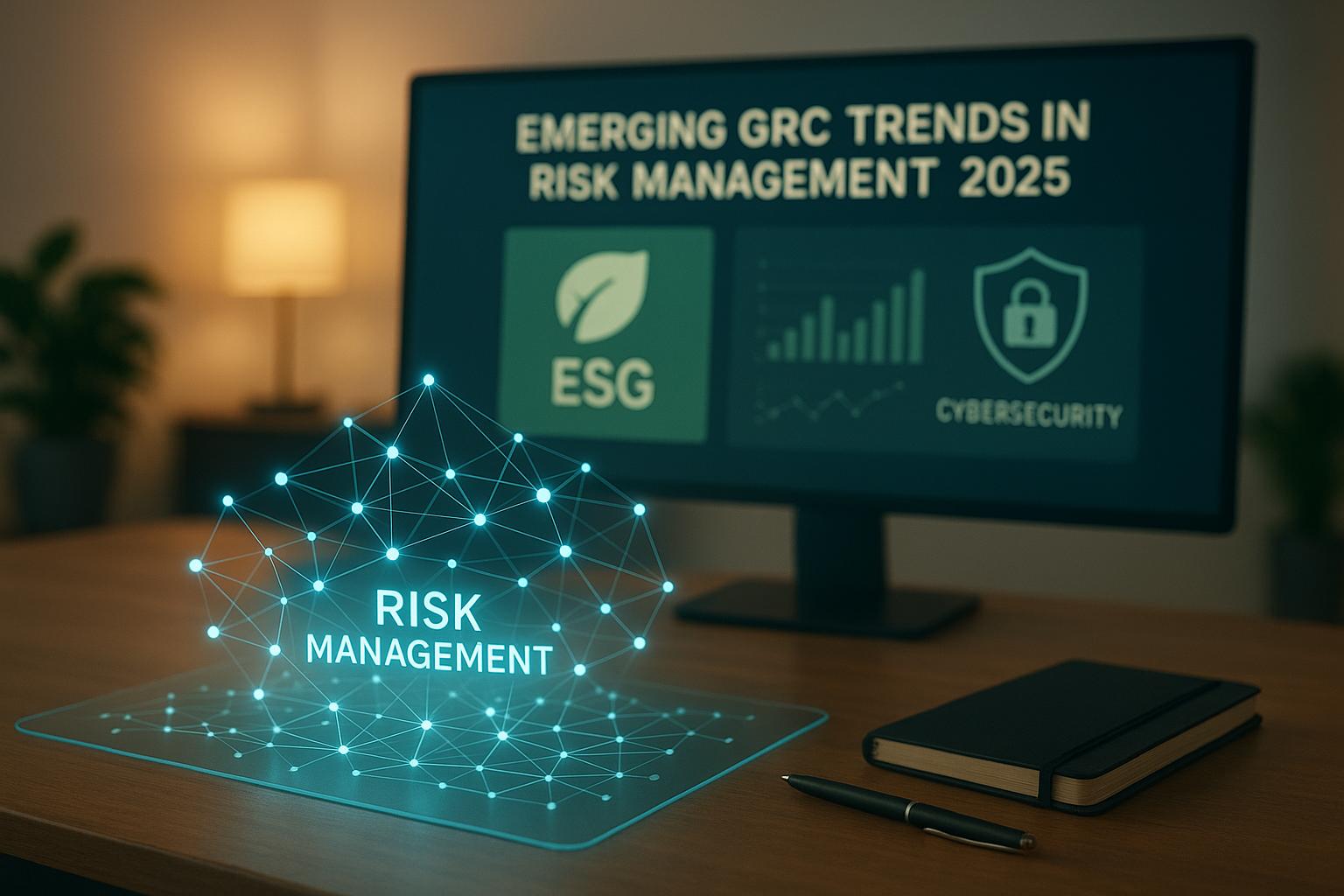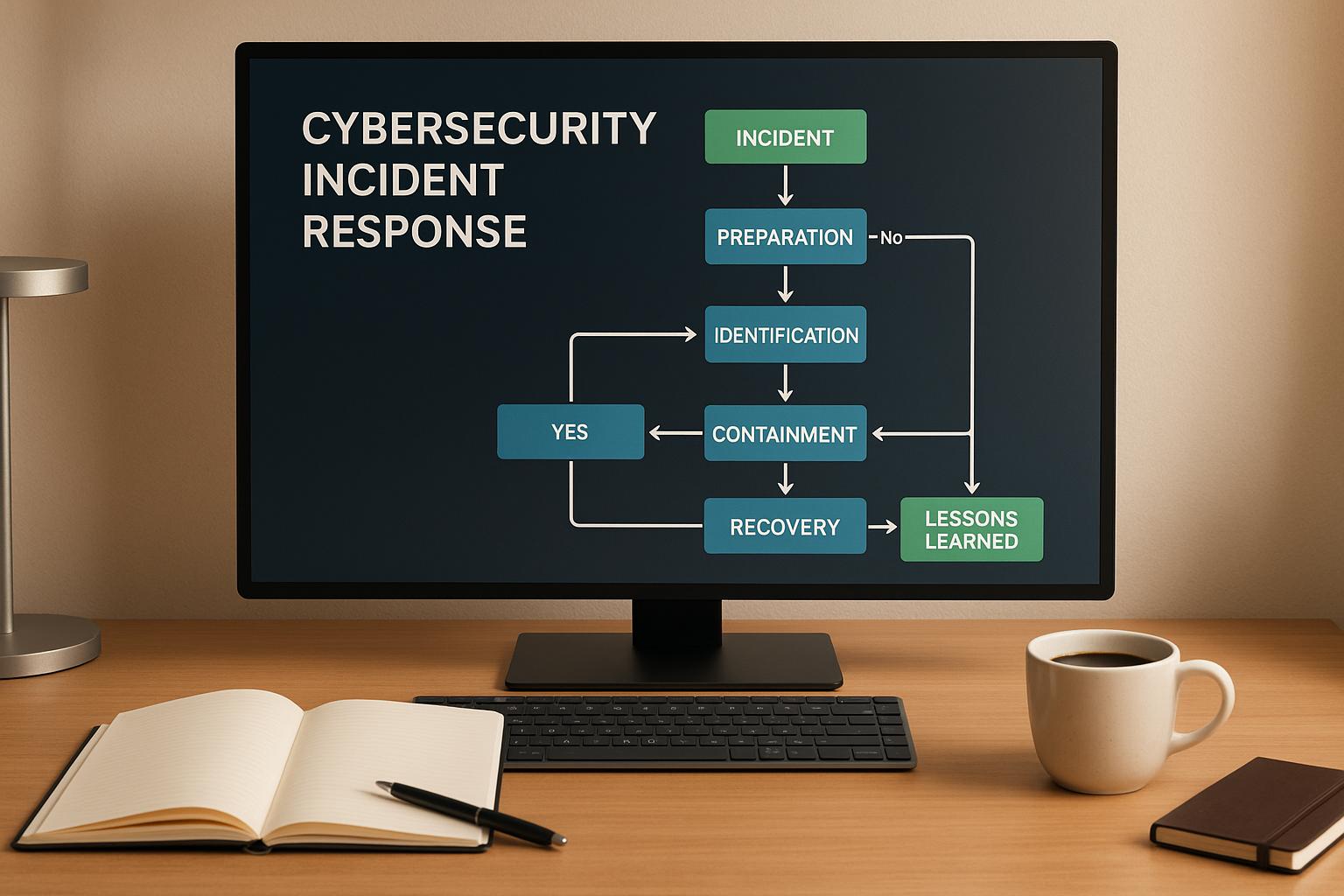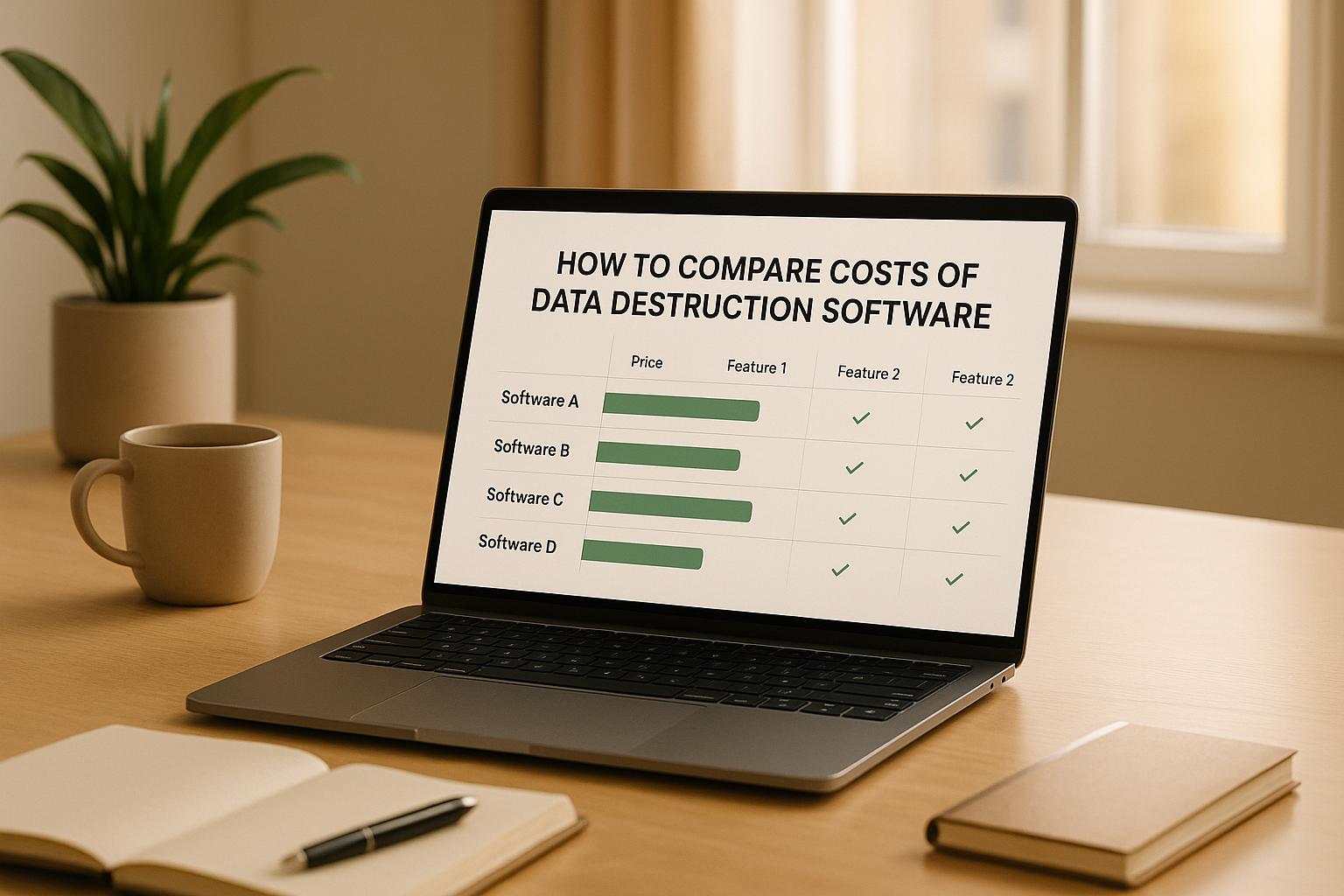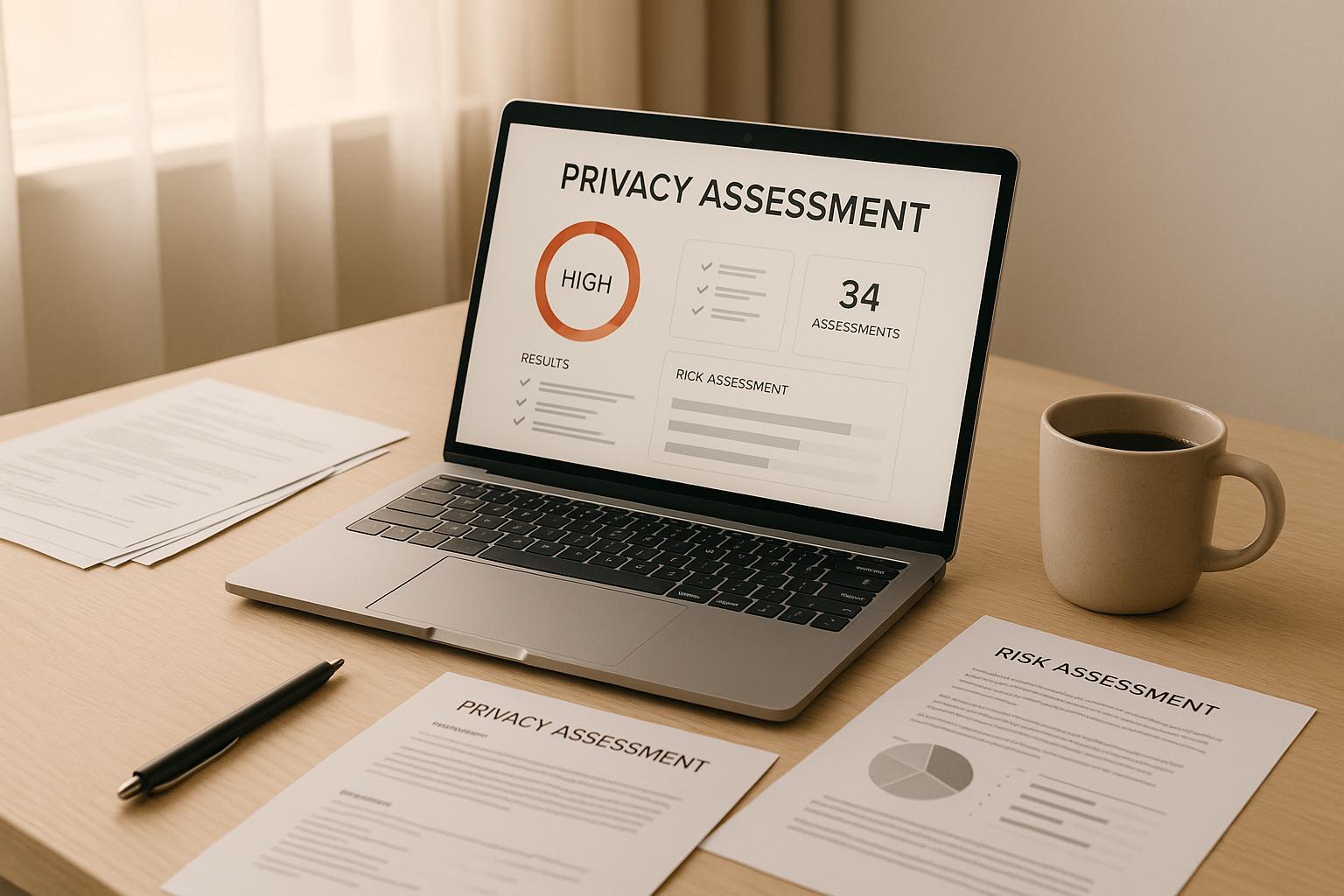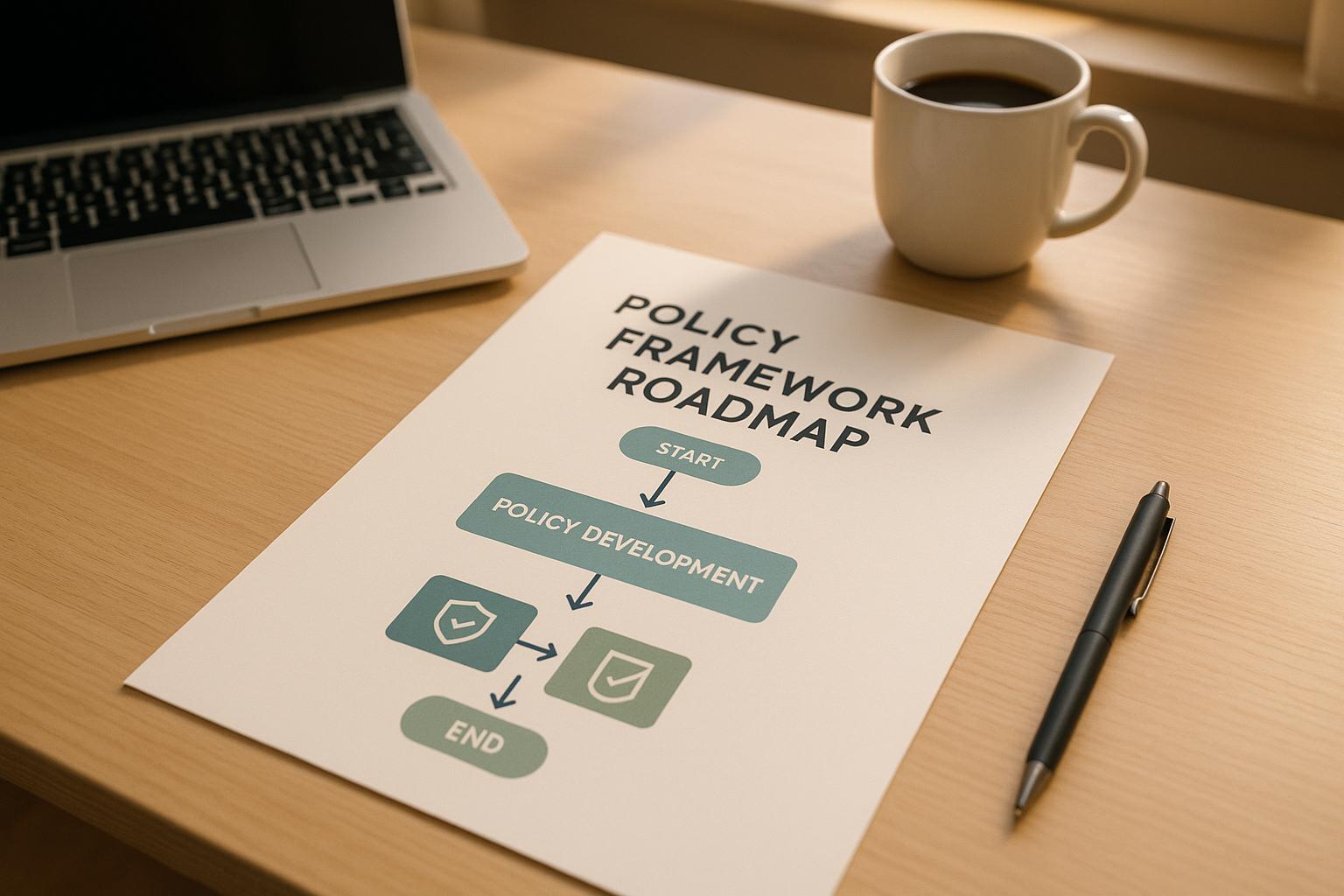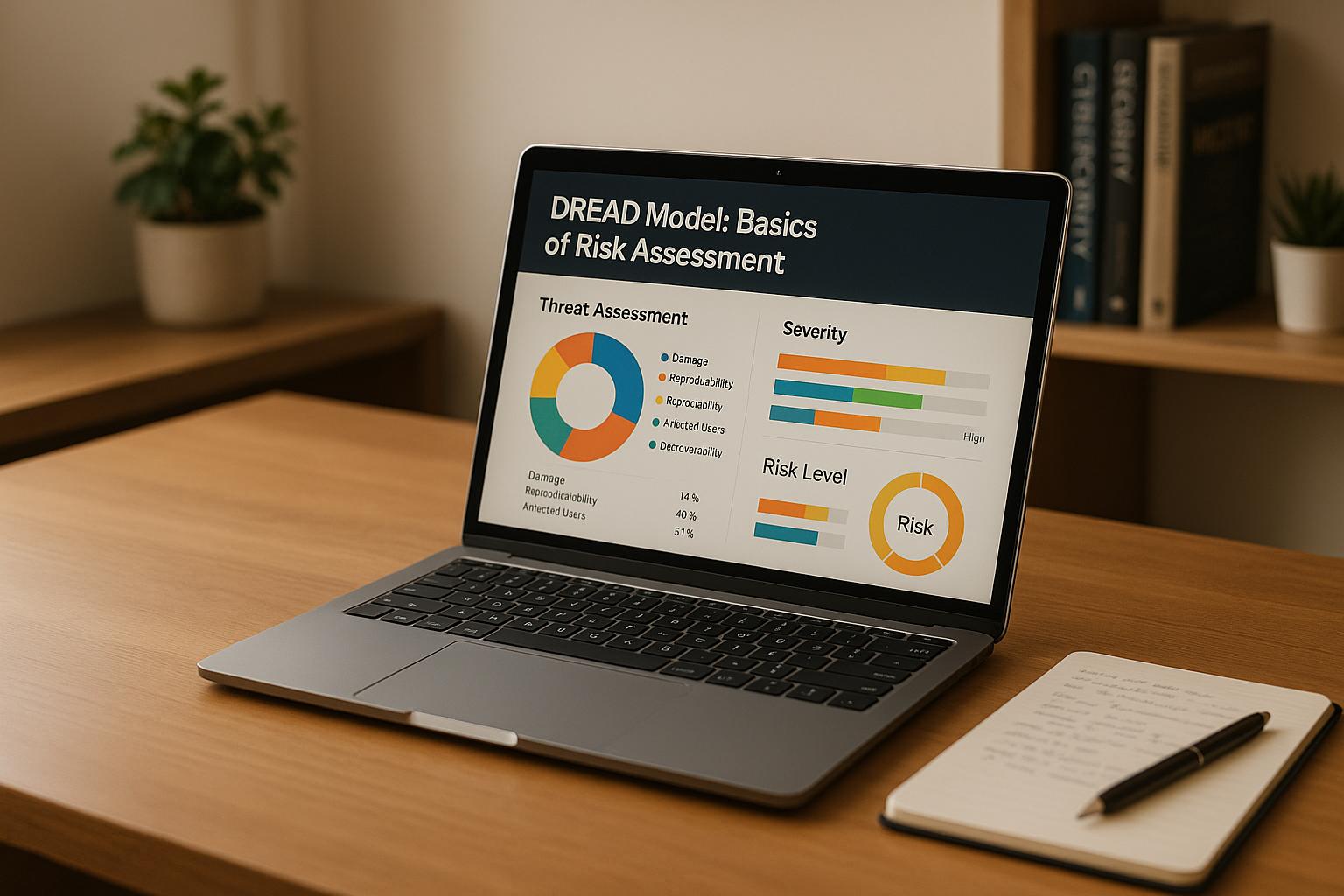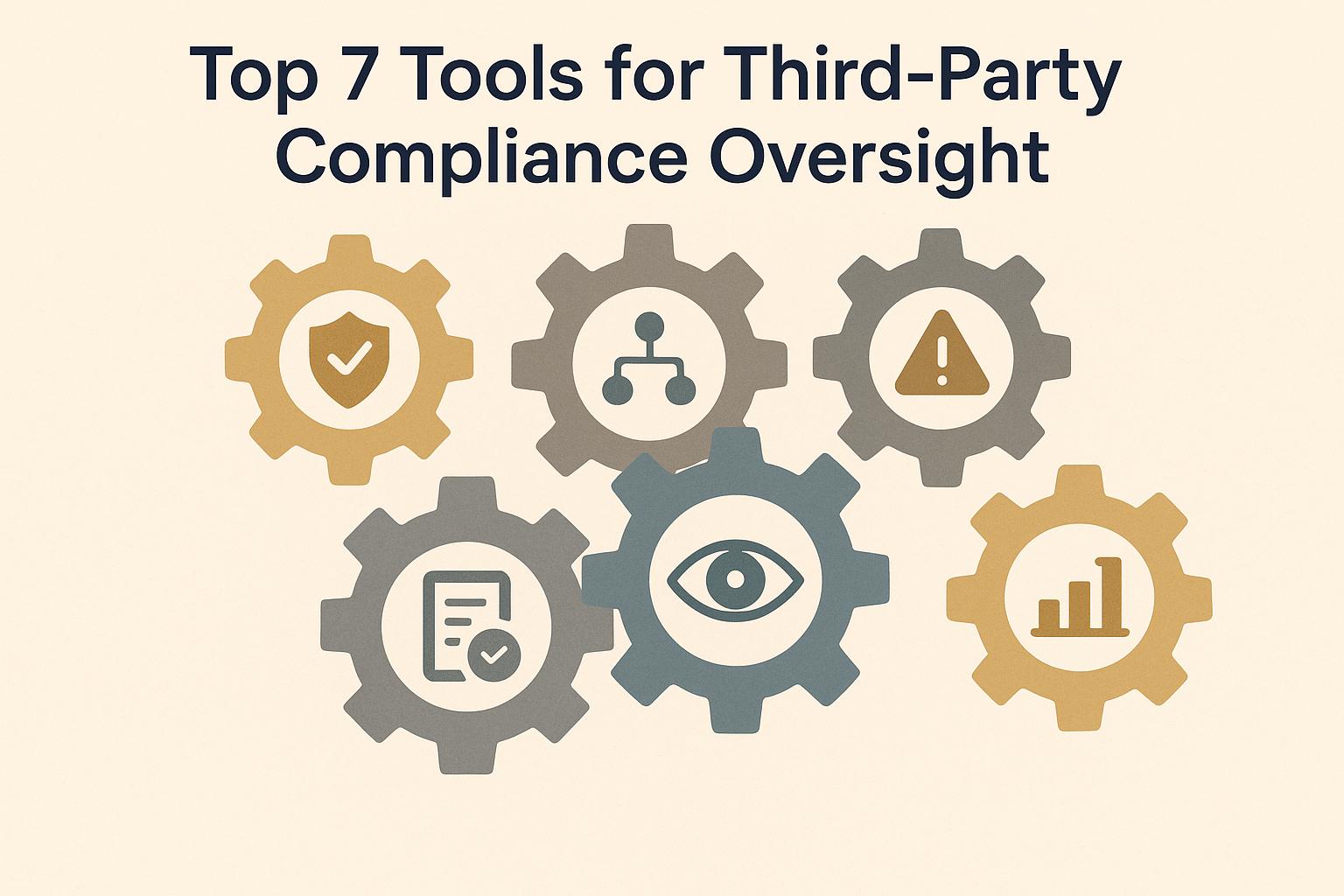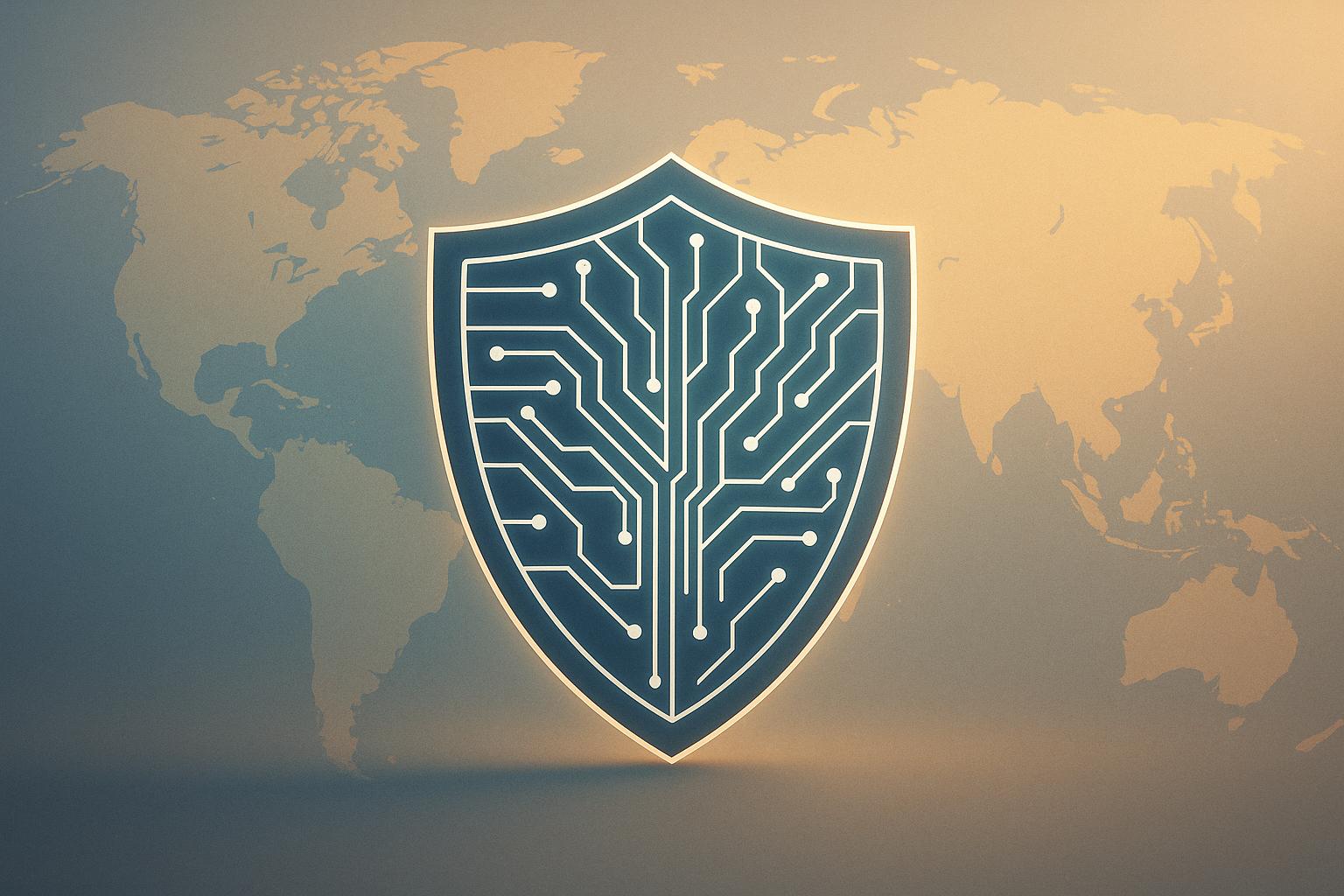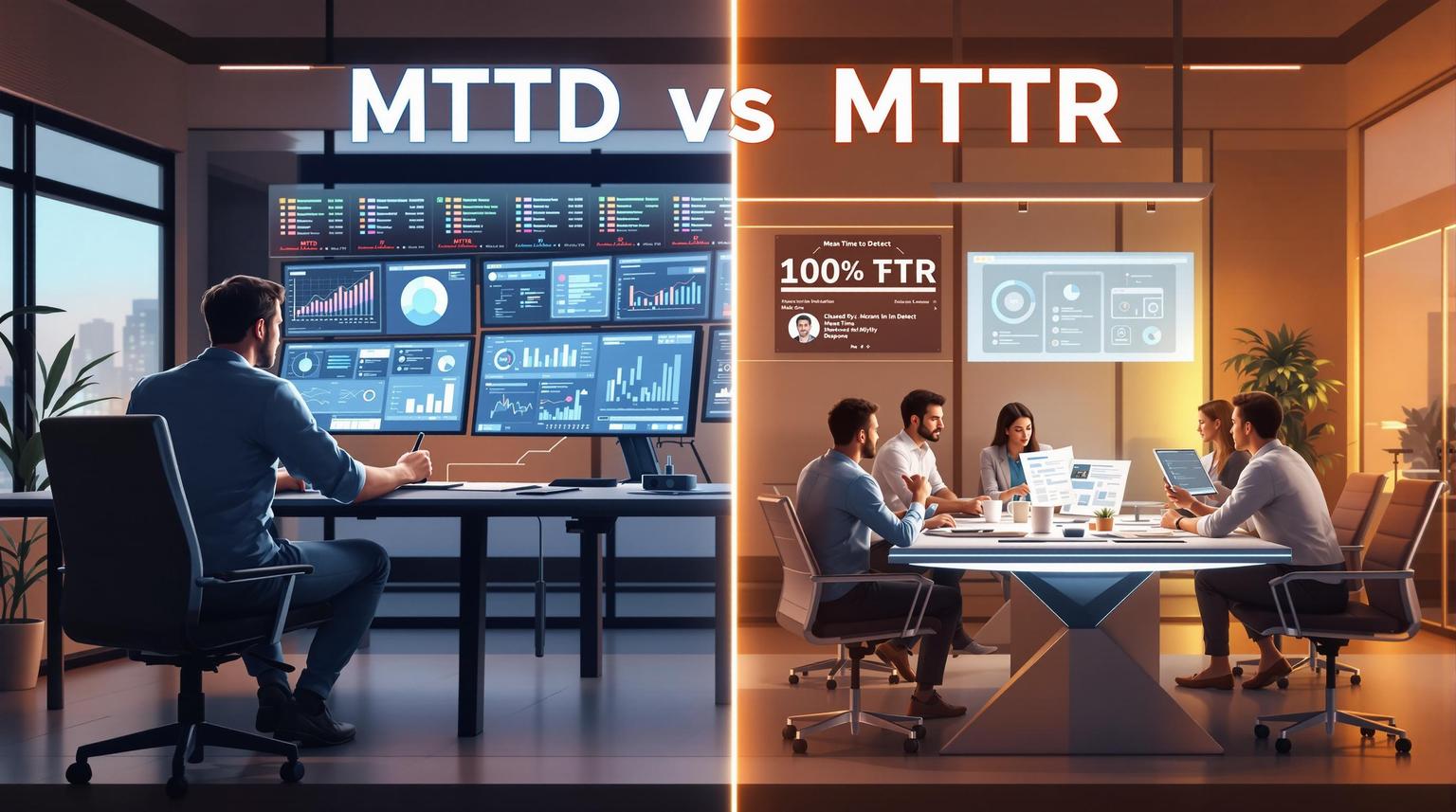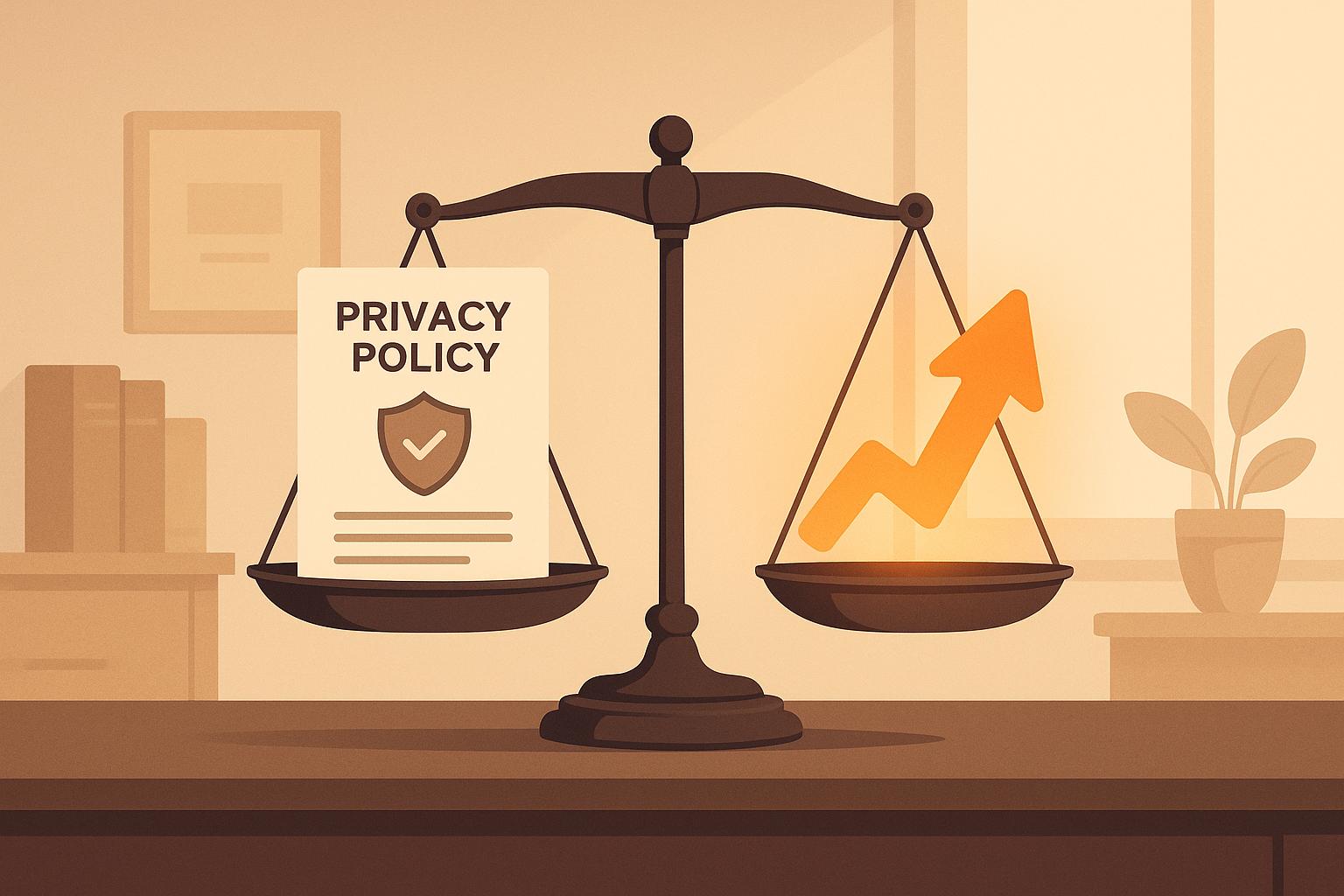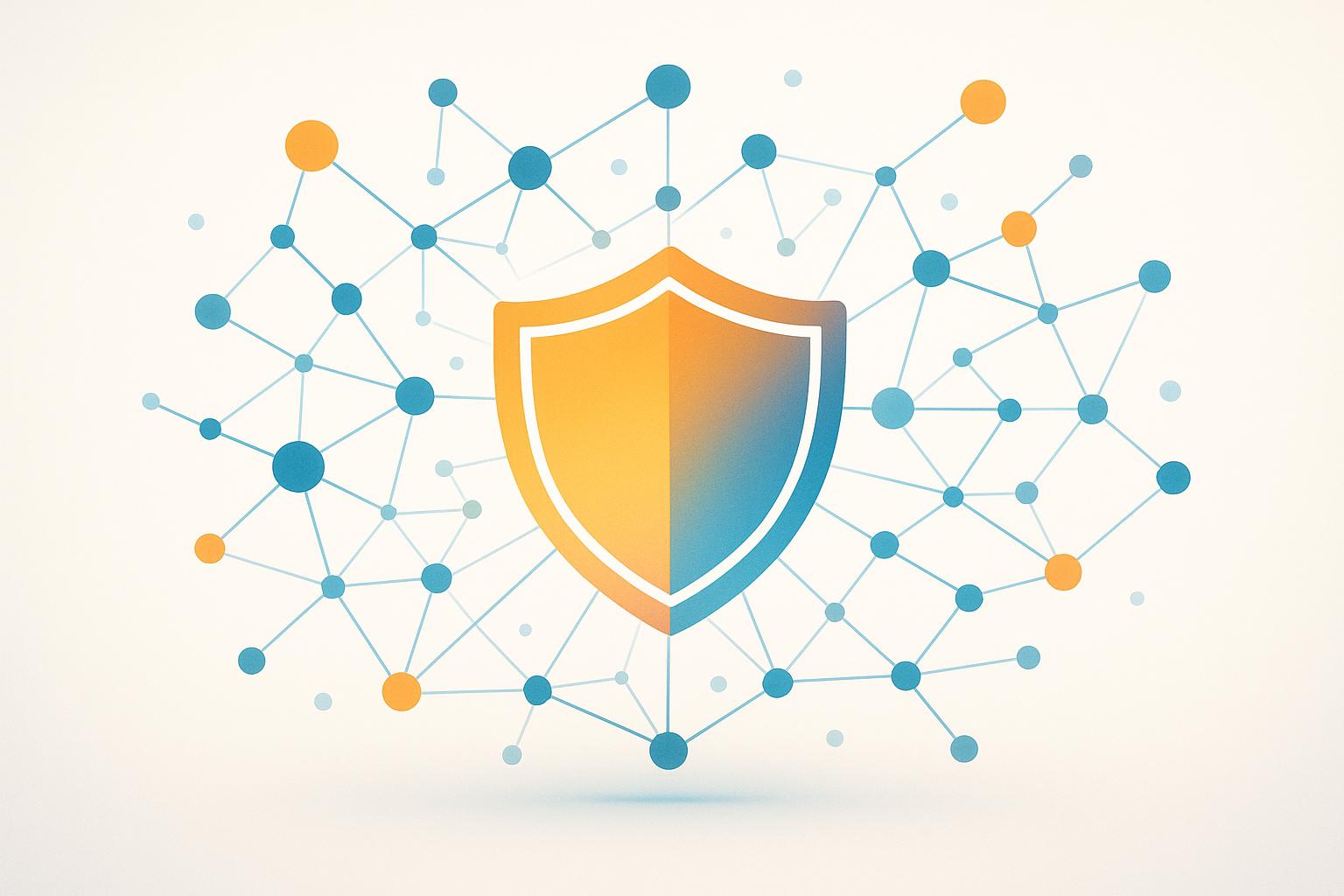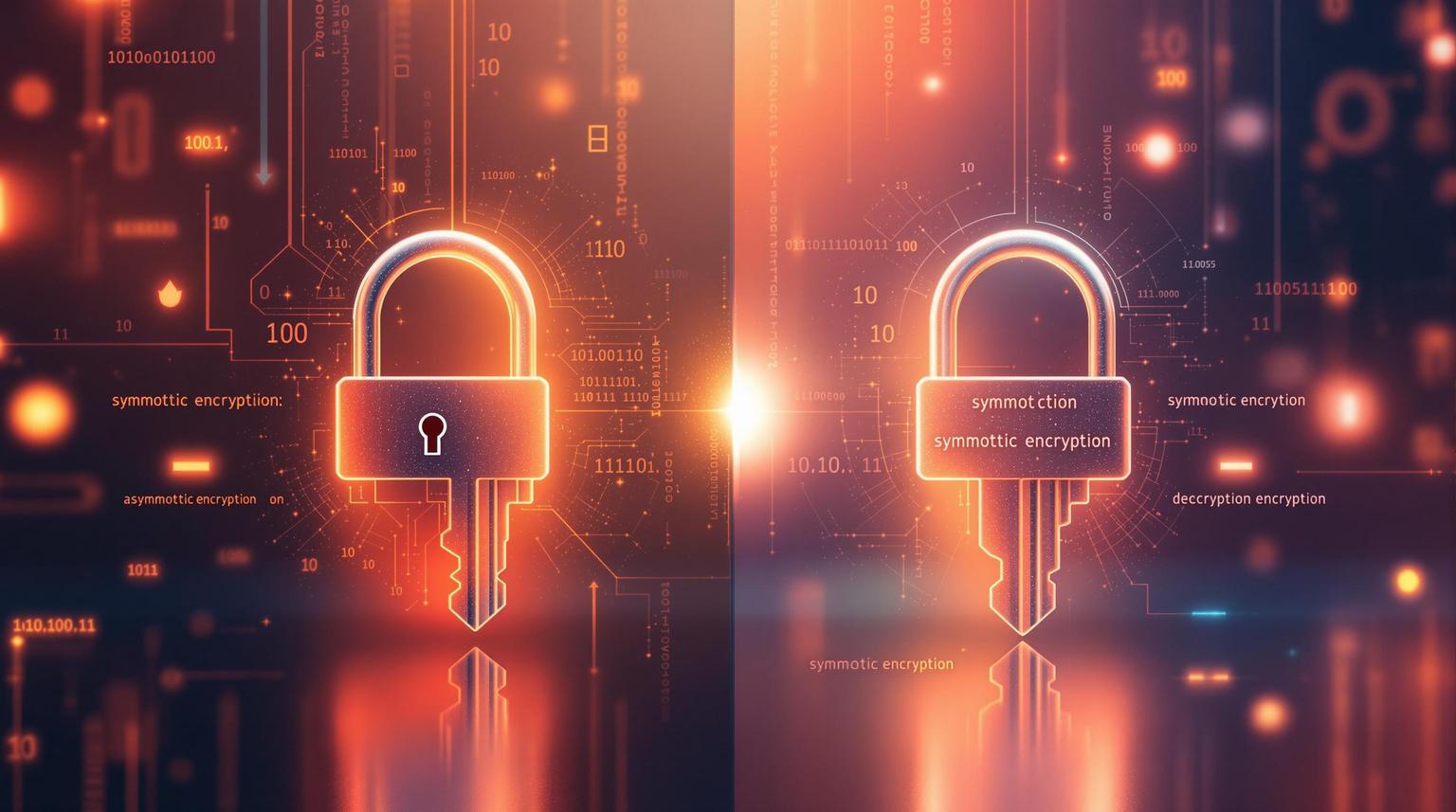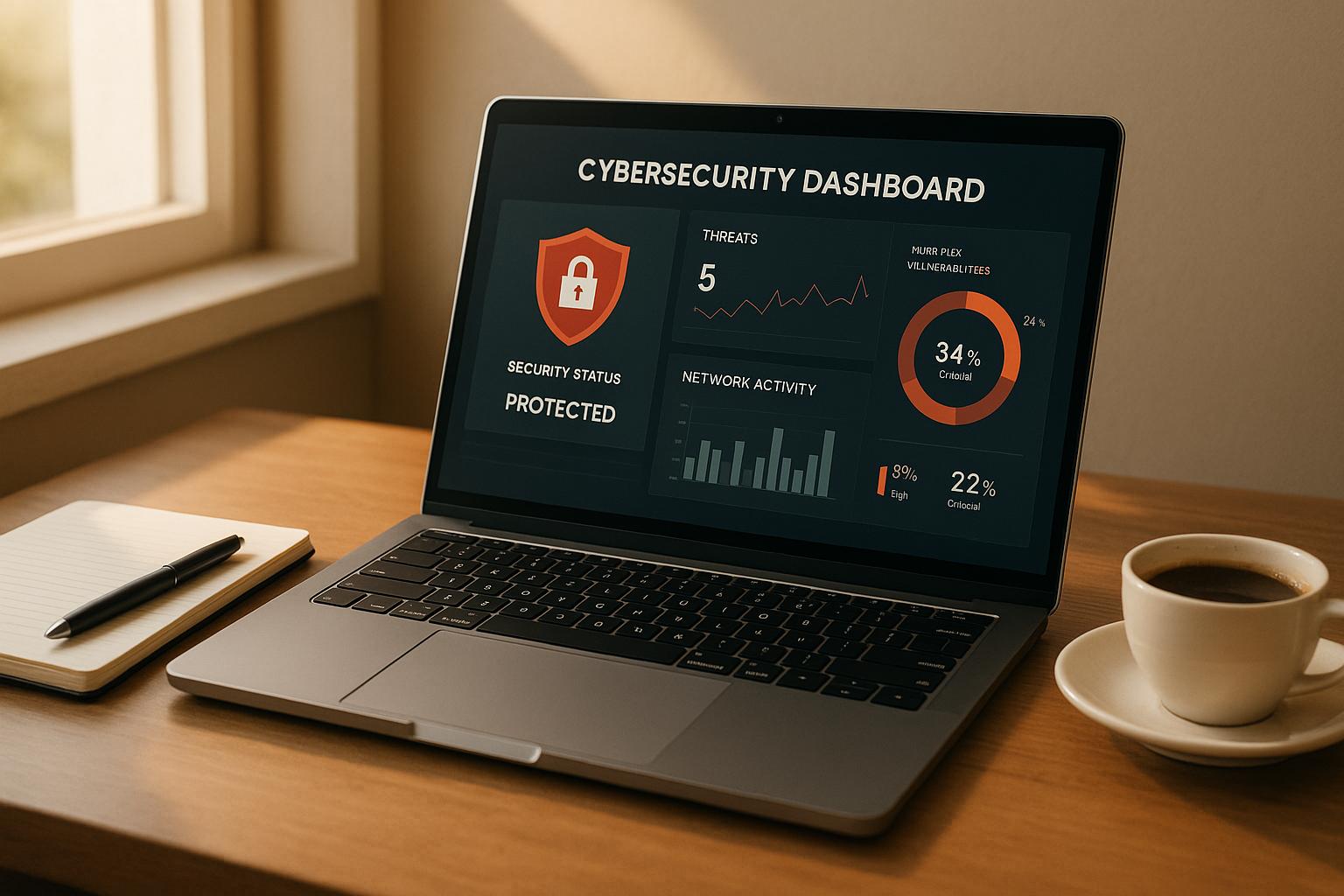
Virtual Chief Information Security Officers (vCISOs) are transforming how businesses handle cybersecurity. Unlike traditional Managed Security Service Providers (MSSPs), which focus on technical tasks like monitoring and patching, vCISOs provide high-level security leadership tailored to business goals. They’re cost-effective, flexible, and help organizations navigate complex compliance frameworks like SOC 2, ISO 27001, and GDPR.
Key Takeaways:
- vCISOs help reduce cybersecurity incidents by 30% and improve threat detection by 40%.
- They cost 35%-40% less than hiring a full-time CISO (annual salaries often exceed $300,000).
- Services include risk management, compliance support, and aligning security with business objectives.
- The market for Governance, Risk, and Compliance (GRC) solutions is growing at a 13.22% CAGR through 2030.
Here’s a breakdown of five leading vCISO providers:
- Cycore: Combines GRC expertise with employee engagement and automated compliance tools.
- Strategic Security Solutions: Focuses on aligning security with broader business goals, offering flexible engagement models.
- Rivial: Provides proactive risk management and built-in compliance tools for industries like healthcare and finance.
- Fractional CISO: Offers a team-based approach for part-time security leadership, ideal for small businesses.
- Strategic Virtual CISO Services: Emphasizes aligning cybersecurity with business growth while simplifying compliance.
Quick Comparison:
| Provider | Focus | Pricing | Compliance Expertise | Service Options |
|---|---|---|---|---|
| Cycore | GRC and employee involvement | Tiered plans, results-driven | SOC 2, HIPAA, ISO 27001, GDPR | Start-up, Mid-Market, Enterprise |
| Strategic Security Solutions | Business goal alignment | $2,000-$20,000/month | Regular audits, data encryption | Retainer or project-based |
| Rivial | Risk and compliance management | $5,000-$50,000/project | HIPAA, PCI, ongoing assessments | Retainer or project-based |
| Fractional CISO | Team-based leadership | $5,000-$25,000/month | SOC 2, HITRUST, ISO 27001 | Blocks of time or project-based |
| Strategic Virtual CISO | Business-driven security strategy | Custom pricing | NIST, ISO 27001, SOC 2 | Short-term or long-term |
vCISOs offer a smarter, more targeted approach to cybersecurity, making them a valuable alternative to MSSPs for businesses of all sizes.
What is a Virtual CISO?
1. Cycore
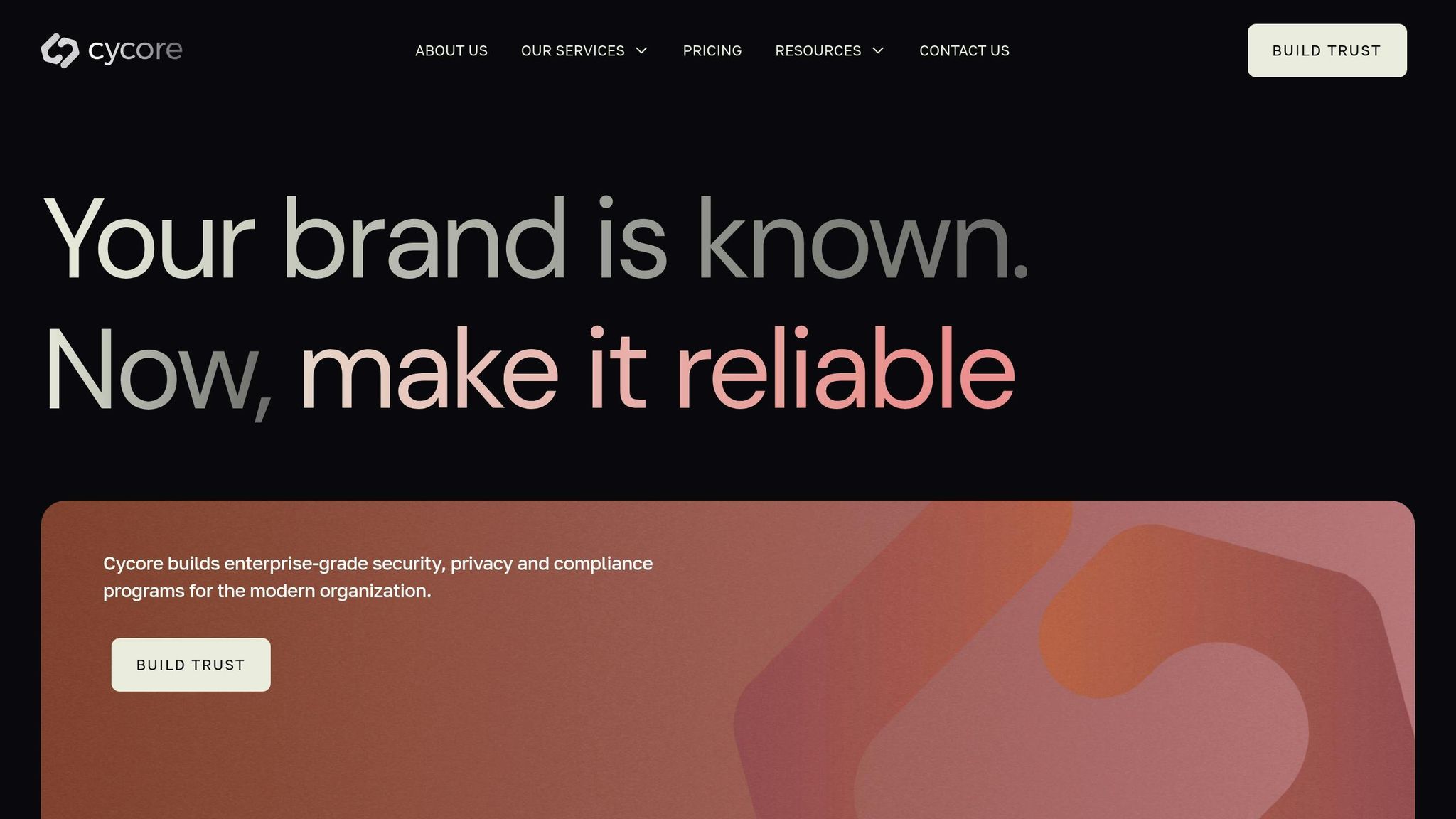
Cycore Secure takes a fresh approach to the vCISO (Virtual Chief Information Security Officer) space, blending cybersecurity governance with strategic business leadership. Founded by Kevin Barona, the platform goes beyond the typical technical monitoring offered by many MSSPs (Managed Security Service Providers) by focusing on a more integrated and strategic approach to security.
Leadership Approach
At the heart of Cycore’s philosophy is a unified GRC (Governance, Risk Management, and Compliance) framework. This approach weaves together governance, risk, and compliance into a cohesive strategy. What makes Cycore different is its emphasis on involving employees at all levels in shaping and implementing policies, creating a balance between top-down directives and bottom-up participation.
"GRC ensures businesses don't just meet requirements but operate better overall." – Scott Mitchell, founder of the Open Compliance and Ethics Group (OCEG)
By fostering clarity and accountability across departments, Cycore redefines security as a shared responsibility, not just an IT issue. Their enterprise risk management program continuously evaluates changes in technology, regulations, and business operations, ensuring that controls remain effective and adaptable.
Compliance Management
Cycore’s approach to compliance is designed to simplify processes while reducing risk. This is particularly important as the cost of non-compliance has climbed to an average of $15 million. The platform automates compliance assessments, making it easier to identify and address risks. It also tracks sensitive data, monitoring its location, how long it’s stored, its protection status, and who has access to it. This aligns with growing consumer expectations, as 63% of consumers now prioritize secure data collection and storage practices.
Cycore offers prebuilt policies mapped to 13 global frameworks, including SOC 2, HIPAA, ISO 27001, and GDPR. With continuous monitoring, the platform moves away from traditional annual audits, flagging compliance issues as they happen. As Cycore puts it:
"Continuous monitoring is now the standard. A once-a-year audit isn't enough anymore."
The platform also promotes data minimization, helping businesses identify and eliminate unnecessary, outdated, or duplicate sensitive data.
Service Flexibility
Cycore provides three service tiers to meet different organizational needs:
- Start-up Plan: Includes vCISO services for one framework, basic GRC administration, and foundational security training.
- Mid-Market Plan: Expands to cover multiple frameworks, adds vDPO (Virtual Data Protection Officer) services, advanced GRC tools, annual penetration testing, and audit support.
- Enterprise Plan: Offers the most comprehensive package, including full vCISO and vDPO integration, continuous vulnerability management, quarterly penetration testing, and priority access to experts.
Pricing Model
Cycore’s pricing structure is designed to be flexible and results-driven. Instead of charging per device or user, the platform focuses on delivering broad GRC coverage, positioning itself as a strategic partner rather than a transactional service provider.
"Compliance isn't a burden - it's a growth strategy. The companies that get it right will lead the future."
This mindset reflects Cycore’s belief that compliance and security governance are not just operational necessities but opportunities to drive business growth. By treating these areas as investments, Cycore has carved out a niche as a comprehensive solution in the vCISO space.
2. Strategic Security Solutions
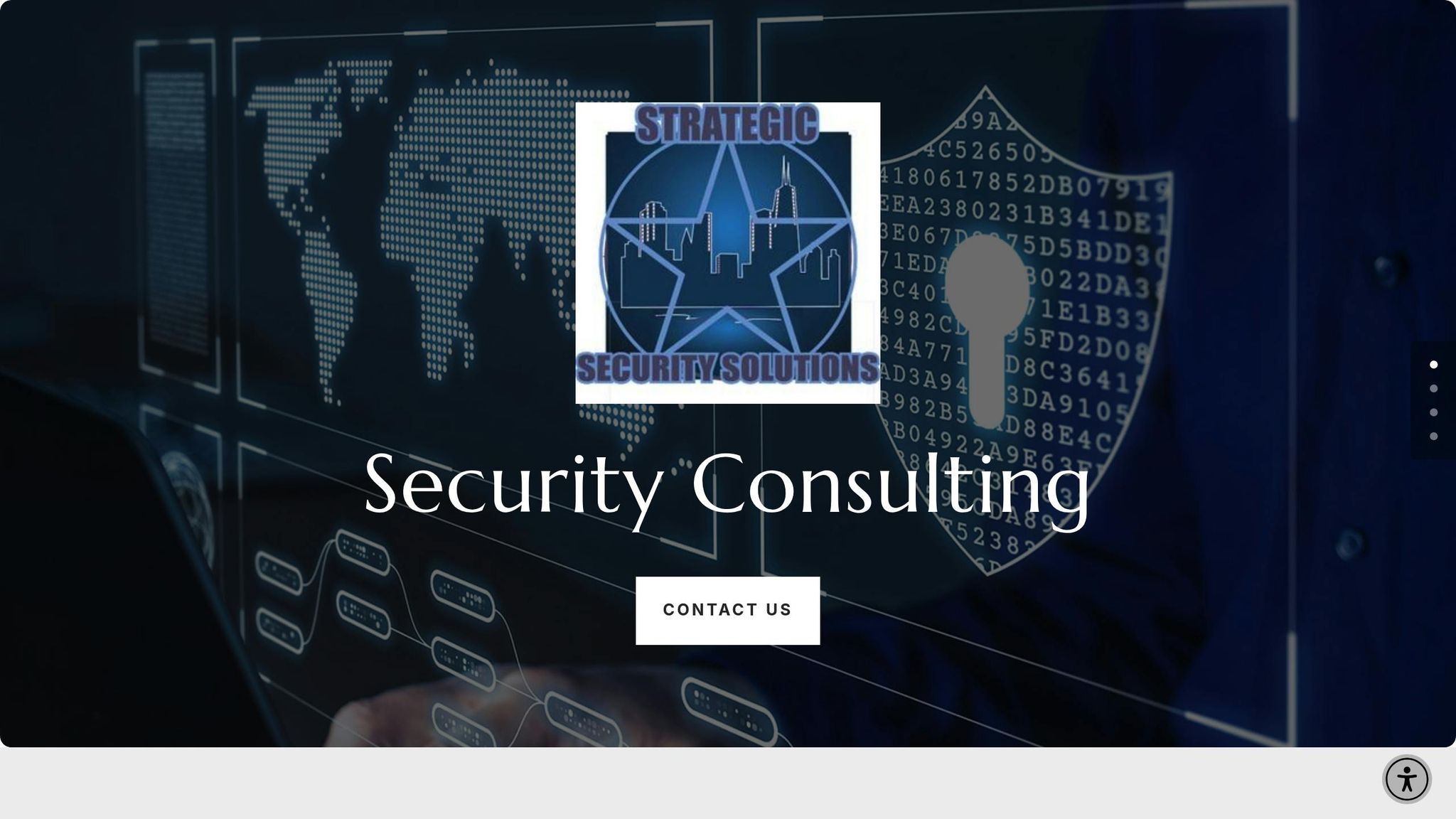
Strategic Security Solutions takes cybersecurity beyond the usual day-to-day operations. By focusing on aligning cybersecurity efforts with broader business goals, they position themselves as a trusted advisor in the vCISO space. This approach enhances the role of virtual CISOs by ensuring security strategies are closely tied to the overall objectives of the business.
Leadership Approach
Strategic Security Solutions doesn't just offer security leadership - it prioritizes strategic consultation. Their virtual CISOs bring a wealth of experience across industries, tailoring security recommendations to meet specific business needs. By leveraging remote services, they enhance organizational resilience. This model allows for efficient management and quick decision-making, enabling the development of adaptive security strategies that might not be achievable with traditional, in-house leadership.
"The successful CISO thinks strategically about security. They understand how to balance the need for security with the need for business continuity, making risk management a critical CISO skill."
- Ivan Vladikin, AMATAS' CISO
Compliance Management
With the ever-changing regulatory landscape, Strategic Security Solutions offers a comprehensive compliance management approach. Their vCISOs conduct regular risk assessments, audits, and continuous monitoring to identify and address compliance gaps. They implement controls such as data encryption and access restrictions, while also educating employees on regulatory requirements.
Service Flexibility
Understanding that security needs can change over time, Strategic Security Solutions provides flexible engagement models. Unlike the rigid structure of full-time CISO roles, their services allow businesses to access security expertise on a part-time or project basis. This flexibility ensures seamless integration with existing security systems, keeping compliance measures up-to-date as regulations and threats evolve.
Pricing Model
Strategic Security Solutions combines strategic expertise with cost-conscious pricing. Their vCISO services are a budget-friendly alternative to hiring a full-time CISO, costing as little as 30% of the salary for a traditional CISO. Considering that full-time CISOs often earn over $200,000 annually, this represents significant savings.
Their pricing options include hourly rates between $200 and $500 for ad-hoc support and monthly retainers ranging from $5,000 to $20,000 based on service scope. Smaller businesses might pay between $2,000 and $4,500 per month, while larger organizations with more complex needs could see costs exceeding $8,000 monthly. For project-based work, fees range from $10,000 for risk assessments to $50,000 for thorough penetration testing and compliance certifications.
3. Rivial
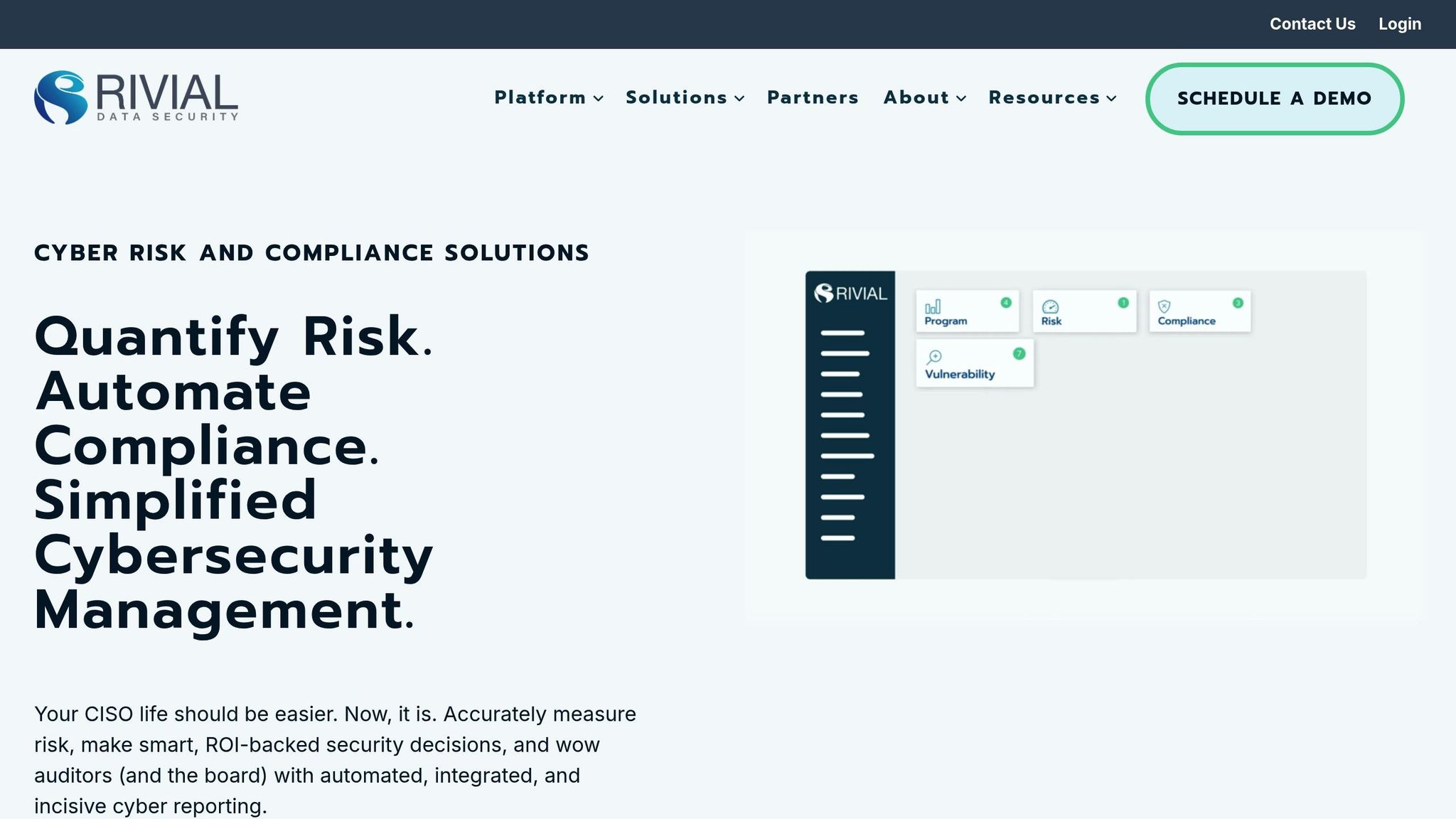
Rivial sets itself apart in the virtual CISO space by combining seasoned security leadership with tailored governance, risk, and compliance solutions. Their approach bridges the gap between technical security needs and broader business goals, ensuring organizations achieve both security and operational alignment.
Leadership Approach
Rivial's virtual CISOs take organizations beyond reactive responses to a more structured, proactive approach to risk management. They simplify complex technical concepts for executives, aligning security strategies with business priorities. By collaborating closely with security teams, these experts handle everything from incident response planning to regulatory assessments. They also craft board-level reports that highlight measurable security progress. Additionally, Rivial's CISOs develop key cybersecurity policies, covering areas like HR, governance, change control, and incident response. This forward-thinking approach naturally integrates with their strong focus on compliance.
Compliance Management
Navigating cybersecurity regulations becomes more manageable with Rivial's built-in compliance tools. Their platform ensures continuous monitoring, a critical need as regulators in the US and UK increasingly demand ongoing assessments. For industries like healthcare and financial services, which operate under strict standards such as HIPAA and PCI, this approach ensures adherence to complex requirements. Rivial's virtual CISOs also stay updated on regulatory changes, leading implementation efforts to meet both external standards and internal policies.
Service Flexibility
Rivial provides flexible service options to suit various business needs. Their retainer model offers consistent, monthly access to virtual CISO expertise, while project-based engagements allow companies to tackle specific compliance or security challenges on demand. This adaptability ensures organizations can scale their engagement as security needs evolve or as the business grows.
Pricing Model
Rivial’s pricing offers a more budget-friendly alternative to hiring a full-time CISO. Monthly retainers range from $5,000 to $15,000, with higher-demand services exceeding $20,000. For project-based work, fees typically fall between $5,000 and $50,000, depending on the complexity and scope. By comparison, a full-time CISO - including salary, benefits, and overhead - can cost around $330,000 annually. Virtual CISO services, therefore, can cut costs by nearly half while still providing expert guidance.
4. Fractional CISO
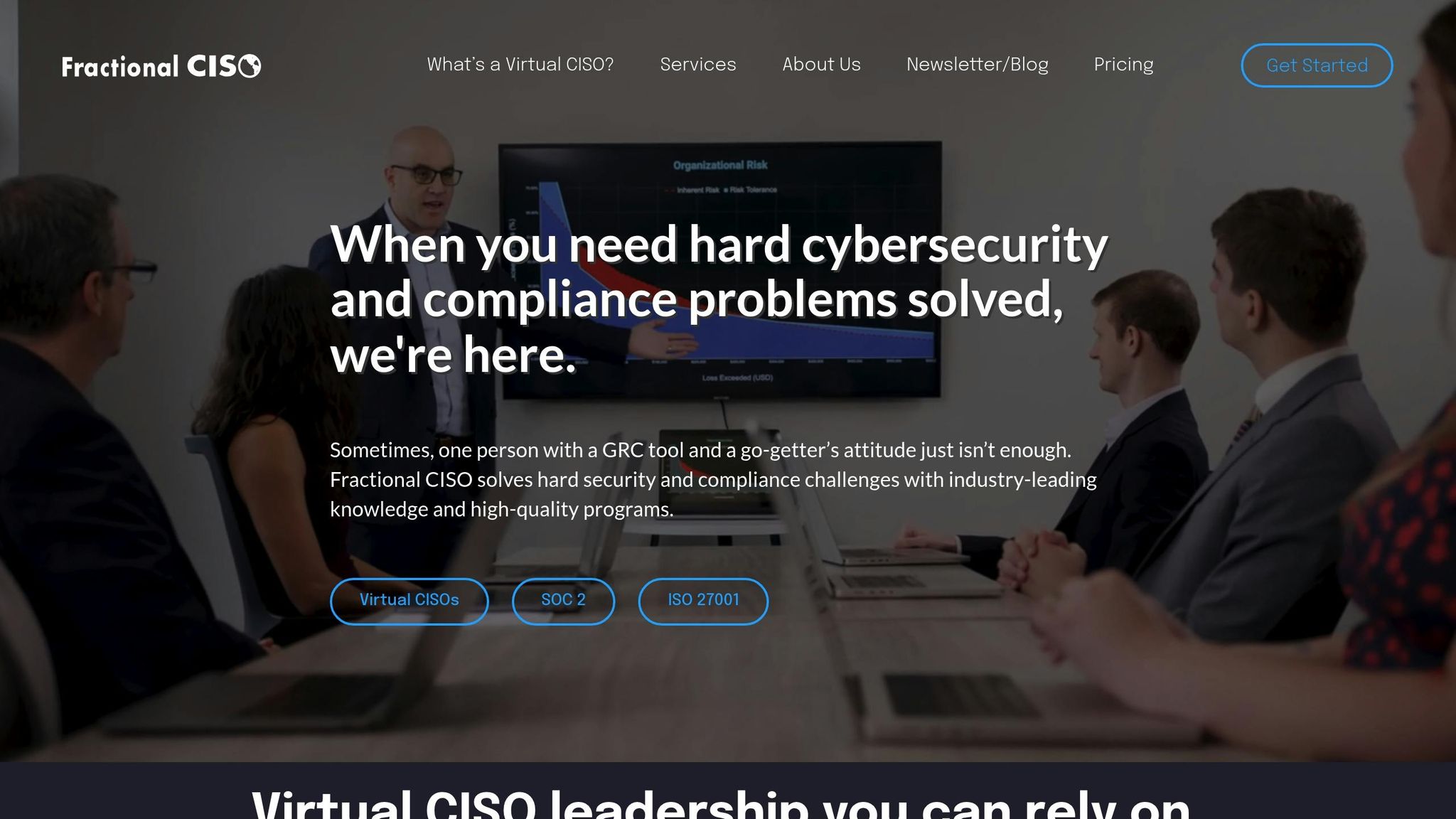
Fractional CISO builds on earlier virtual CISO (vCISO) models by offering a team-based approach to cybersecurity leadership. Instead of relying on a single individual, this service provides part-time, advisory support from a group of senior cybersecurity specialists. The goal? To make expert security leadership more accessible and adaptable for companies that might not have the resources for a full-time Chief Information Security Officer (CISO).
Leadership Approach
The team-based model of Fractional CISO brings a fresh perspective to cybersecurity leadership. By offering part-time or fractional support, they cater specifically to early-stage businesses or organizations with limited budgets. Their approach ensures objective decision-making, always prioritizing the organization's best interests. This collaborative structure provides a significant advantage over traditional single-person leadership models, delivering expertise without the full-time commitment.
Compliance Management
Fractional CISO is particularly skilled at navigating complex regulatory requirements. They provide guidance across multiple frameworks, including HIPAA, HITRUST, NIST, ISO 27001, and SOC 2 assessments. For healthcare organizations, which often struggle with staffing security teams - 79% face challenges, and nearly half lack a dedicated CISO - this service is a game-changer. Fractional CISO steps in to assess existing security measures, identify compliance gaps, and implement plans to meet regulatory standards.
For example, they once helped a company achieve SOC 2 Type 1 Attestation Report status in just a few months by introducing key controls and process improvements. Beyond meeting current requirements, their approach highlights the ever-changing nature of regulations. They stress the risks of non-compliance, including hefty fines and potential damage to a company’s reputation.
Service Flexibility
One of the standout features of Fractional CISO is its flexibility. Organizations can choose from targeted, project-based services or purchase specific blocks of time for tasks like security reviews, compliance audits, or incident response planning. There’s no need for long-term commitments, making it an attractive option for companies that need occasional support. Over time, these initial engagements often grow into long-term strategic partnerships. This adaptable model builds on earlier vCISO concepts by blending expert advice with customizable service options.
Pricing Model
Fractional CISO services typically range from $5,000 to $25,000 per month, depending on the scope of work. Hourly rates fall between $200 and $500, while monthly retainers generally range from $8,000 to $20,000. This pricing structure provides a cost-effective alternative to hiring a full-time CISO, allowing organizations to access top-tier security leadership without overstretching their budgets. The flexibility of this model ensures that services can be tailored to fit each organization’s unique needs, regardless of size or maturity.
sbb-itb-ec1727d
5. Strategic Virtual CISO Services
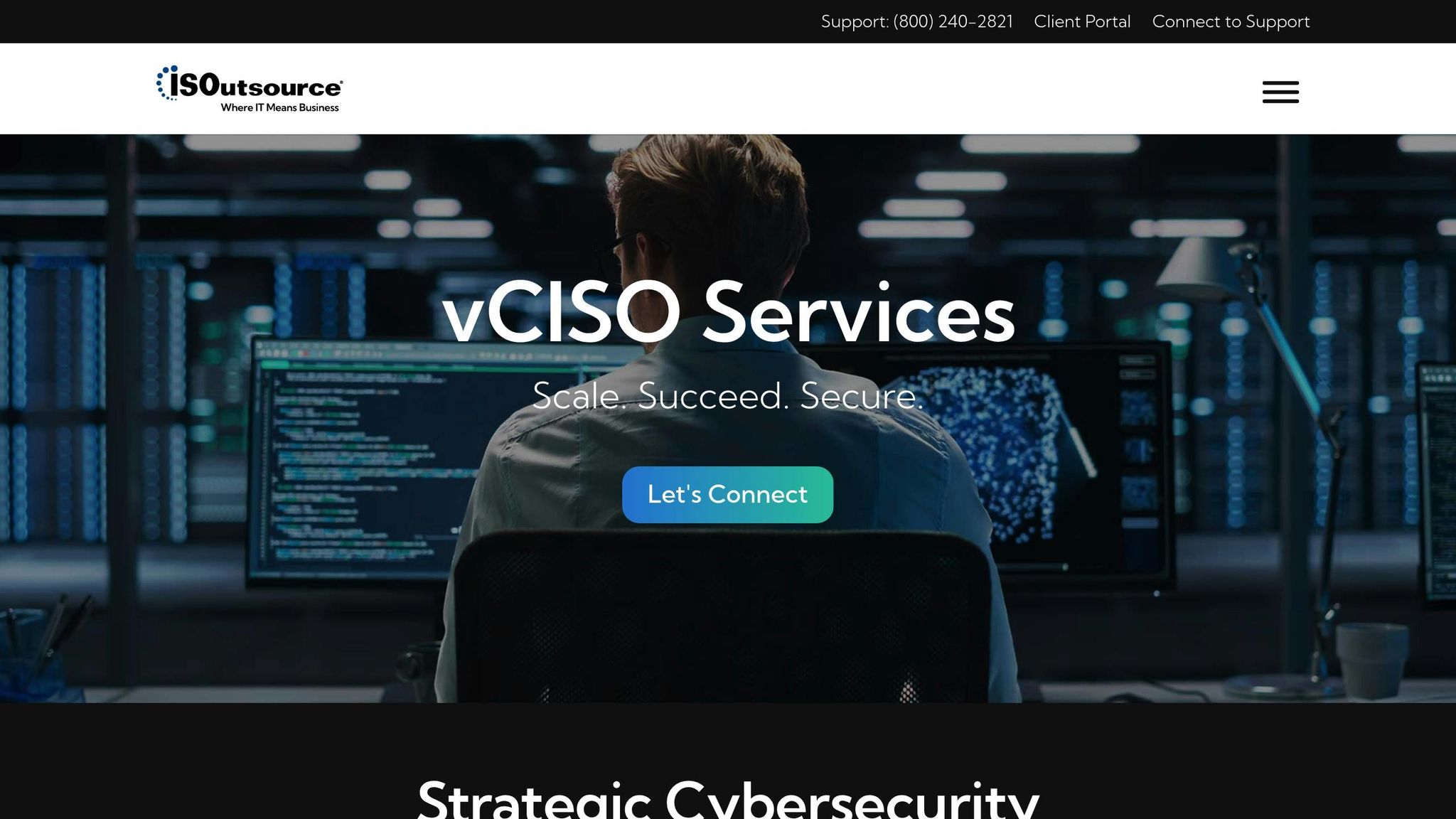
Strategic Virtual CISO Services go beyond just technical support - they offer a security governance model that ties cybersecurity directly to business goals. This approach focuses on creating a long-term, business-driven security strategy that supports growth while addressing risks at an executive level.
Leadership Approach
A key responsibility of a vCISO is to align cybersecurity initiatives with the organization’s broader business objectives. This ensures that security measures not only safeguard assets but also contribute to growth. Building on the evolving role of the vCISO, this service emphasizes a close partnership with executive teams, embedding cybersecurity into the overall business strategy. By translating technical risks into financial terms, the vCISO helps stakeholders understand the implications and encourages collaborative decision-making. This integration naturally extends to ensuring compliance becomes a seamless part of strategic planning.
Compliance Management
Navigating regulatory complexities is another cornerstone of this service. A strategic vCISO simplifies compliance processes by leveraging automation and aligning security strategies with established frameworks like NIST, ISO 27001, and SOC 2. This proactive approach helps organizations identify vulnerabilities and close gaps efficiently. With cybercrime projected to reach a staggering $10.5 trillion annually by 2025, staying ahead with robust compliance management has never been more critical.
Service Flexibility
Flexibility is a defining feature of this service. It adapts to the unique needs of different industries and organizations, whether they’re small startups or large enterprises. This scalability allows businesses to adjust the level of engagement - ranging from short-term consultations to in-depth, long-term partnerships. As CJ Hurd explains:
"A vCISO is not a job title you have to justify. It's a service model that gives you access to senior-level security expertise without having to hire a full-time employee. The 'virtual' part is key: it means your engagement can be as light-touch or deep-dive as you need." - CJ Hurd
This adaptability also enables industry-specific solutions. For SaaS companies, a vCISO ensures continuous compliance with SOC 2 and ISO 27001 standards. In fintech, the focus shifts to securing payment systems through multi-factor authentication, encryption, tokenization, and fraud detection. Life sciences organizations benefit from safeguarding patient data while adhering to regulations like HIPAA and GDPR. Meanwhile, consulting firms rely on vCISOs to protect client data and manage third-party risks effectively. With 48% of small and midsize businesses experiencing a cyber incident in the past year, having flexible and tailored security leadership is more crucial than ever.
Comparison: Pros and Cons
Virtual CISO services and traditional MSSPs each bring unique strengths and limitations to the table, influencing how businesses handle security, compliance, and risk management.
Virtual CISO services focus on strategic leadership and aligning security with business goals. Ivan Vladikin, AMATAS' CISO, highlights this approach:
"The successful CISO thinks strategically about security. They understand how to balance the need for security with the need for business continuity, making risk management a critical CISO skill".
By translating technical risks into financial terms, vCISOs help organizations integrate security initiatives with broader business growth strategies.
On the other hand, traditional MSSPs excel in operational execution. They provide services like threat detection, incident response, and managed security operations, ensuring round-the-clock monitoring and support. Both models address governance, risk, and compliance challenges, but in distinct ways.
Cost Considerations
The cost structures of these approaches vary significantly. Hiring a full-time CISO can cost over $300,000 annually, making it an impractical option for many businesses. Virtual CISO services offer more flexible pricing, with hourly rates of $200-$500, monthly retainers ranging from $5,000 to $20,000, and project costs between $10,000 and $50,000. Harry Karamitopoulos, President of Modicum, explains the value:
"You can rely on a single individual, or you can have the benefit of a whole team of deep expertise and process knowledge. It's a small investment when you're considering in-house resources versus an entire team available on call at a fractional need – the ROI is really compelling".
MSSPs, by contrast, often bundle services into less flexible packages, which may not suit every organization's needs.
Compliance Management and Independence
When it comes to compliance, the two models serve different purposes. Research shows that 80% of companies using vCISO services report better risk management, and 90% believe combining vCISO and MSSP services enhances their security posture. Virtual CISOs focus on strategic compliance planning, framework assessments, and regulatory alignment, while MSSPs handle the technical side - implementing controls, monitoring compliance, and providing detailed reporting.
Another key distinction lies in independence. Virtual CISOs offer an unbiased perspective, much like how an external auditor reviews financial records. As the saying goes, you wouldn’t ask your accountant to audit their own books. Similarly, relying on the same partner for both implementing and evaluating your cybersecurity measures can create conflicts of interest.
Service Flexibility
Flexibility is where virtual CISO services truly stand out. They adapt to the unique needs of businesses, whether supporting small startups or large enterprises. Engagements can range from short-term consultations to long-term partnerships. Rolland Miller, Vice President of Security and Compliance at Orum, shares his experience:
"It kind of is like my 'security blanket.' I am a team of one for security and I need support. Having the Rhymetec team to lean on, help me consider options, weigh the pros and cons for different assets around security, and have someone else to bounce ideas off of has been helpful".
In contrast, MSSPs offer comprehensive but more standardized services, which may lack the personalized strategic guidance that vCISOs provide.
| Aspect | Virtual CISO Services | Traditional MSSPs |
|---|---|---|
| Leadership Approach | Strategic guidance; risk management; executive-level communication | Operational focus; reactive threat response; technical service delivery |
| Compliance Management | Strategic planning; framework assessment; regulatory alignment | Control implementation; compliance monitoring and reporting |
| Pricing Model | Flexible: $200-$500/hour, $5,000-$20,000/month retainers, $10,000-$50,000 projects | Bundled packages with less flexibility |
| Service Flexibility | Highly adaptable; scales with business needs | Standardized; less personalized |
Tackling Compliance Challenges
Compliance remains a major hurdle for 70% of businesses, as staying up-to-date with evolving regulations proves challenging. The financial consequences of non-compliance can be severe - Meta’s $1.2 billion GDPR fine in 2023 for unlawful data transfers is a stark reminder. Virtual CISOs use automation and real-time tools to simplify compliance processes, while MSSPs provide the technical foundation to maintain necessary controls.
Ultimately, the choice between Virtual CISO services and MSSPs depends on what your organization prioritizes. Virtual CISOs are ideal for businesses seeking strategic security leadership, while MSSPs are better suited for those in need of comprehensive operational security. Combining the two approaches can deliver both strategic direction and operational strength, ensuring a well-rounded security posture.
Conclusion
Virtual CISO (vCISO) services have become a compelling alternative to traditional managed security service providers (MSSPs), offering executive-level security leadership at a fraction of the cost. For perspective, while the average annual salary for a Chief Information Security Officer (CISO) in the U.S. ranges from $237,743 to $289,249, vCISO services typically cost 35% to 40% less than hiring a full-time CISO.
The difference lies in their approach. MSSPs often focus on operational tasks and responding to threats as they arise. In contrast, vCISOs provide strategic guidance that aligns cybersecurity efforts with broader business goals. Considering that 65% of small and medium-sized businesses reported experiencing a cyberattack in the past year, this proactive leadership model is essential for effective risk management.
When selecting a vCISO partner, look for industry expertise, relevant certifications, and a strong track record in your sector. Scalability and adaptability are also crucial - your vCISO should be able to adjust their services as your organization grows or your risk profile shifts. Ensure the provider offers genuine security expertise, not just IT or software solutions. The right partner will translate technical risks into actionable insights for your leadership team.
Take the time to clearly define your expectations, review pricing models, and request client references. This due diligence will help you find a vCISO service that meets your immediate security and compliance needs while positioning your organization for long-term success.
Ultimately, the growing adoption of vCISO services highlights a shift in how organizations view cybersecurity. It’s no longer just about technical fixes - it’s about strategic foresight. As cyber threats evolve and regulatory demands grow more complex, businesses need partners who can combine vision with expertise to navigate these challenges effectively.
FAQs
What’s the difference between a virtual CISO and a traditional MSSP, and how does each impact a company’s cybersecurity strategy?
A virtual CISO (vCISO) brings strategic cybersecurity expertise to the table, focusing on areas like governance, risk management, and compliance. Unlike hiring a full-time Chief Information Security Officer, a vCISO offers flexible, customized support without the expense or commitment of a permanent role.
In contrast, a traditional MSSP (Managed Security Service Provider) takes care of the day-to-day aspects of cybersecurity. This includes tasks like monitoring systems, detecting threats, and responding to incidents. While MSSPs are operationally focused, vCISOs take a broader view, developing and overseeing the organization’s entire security strategy.
The main distinction lies in their roles: vCISOs concentrate on long-term planning and ensuring compliance, whereas MSSPs handle immediate operational needs. Many companies find that combining these two approaches creates a more well-rounded and effective cybersecurity framework.
How do virtual CISO services align cybersecurity with business goals, and what advantages does this bring?
Virtual CISO (vCISO) Services: Bridging Cybersecurity and Business Goals
Virtual CISO (vCISO) services are designed to help businesses seamlessly integrate cybersecurity into their overall strategy. By offering tailored security solutions, these services take a proactive approach to managing risks and ensuring compliance with industry regulations. Essentially, a vCISO provides the strategic guidance needed to make cybersecurity a core part of an organization's operations.
When cybersecurity aligns with business objectives, companies can better defend against threats, reduce risks, and simplify compliance efforts. This approach not only safeguards critical assets but also contributes to long-term growth, strengthens trust with stakeholders, and creates a safer, more competitive business landscape.
What should a company look for in a virtual CISO provider to ensure their security and compliance needs are met?
When choosing a virtual CISO (vCISO) provider, it's essential to prioritize their industry-specific experience, knowledge of relevant regulations, and their ability to craft strategies tailored to your organization's needs and objectives. A reliable vCISO should also possess strong communication skills, enabling them to work seamlessly with your team and provide clear, actionable advice.
It's equally important to review their track record in handling governance, risk, and compliance issues. Opt for a provider who delivers customized solutions, rather than a generic approach, ensuring they can address your unique security challenges and regulatory demands effectively.




